
afto
-
Posts
604 -
Joined
Content Type
Forums
Store
Blogs
Downloads
Events
Gallery
Posts posted by afto
-
-
Thanks everyone for all the kind comments. Glad to hear that some of you have found some nuggets of useful information sprinkled here and there. Have to confess I have no idea what to do with my life now that the review is finished. ;) Maybe I will have to plan another trip. :ship: :D
-
June 6: Homeward Bound
It was a very early start on our travel day. Checking out, the front desk clerk was quite surprised that we were leaving so early for a 9:10 am flight; he felt that we would have had time for breakfast. But we would rather be too early than too late for a flight, so we retraced our steps from four days earlier and caught an early TXL airport bus. That was the first stage of our very long but perfectly smooth journey back to the west coast of Canada via Amsterdam on KLM. If you were on one of our flights, I apologize for the coughing and sneezing.
Sitting at Berlin’s Tegel Airport waiting for our flight, I tried to distract myself from the lack of comb honey at airport breakfast venues by trying to do some preliminary sorting of all the great memories that we had accumulated since we left home. I asked DH which city he had liked best. His response was Moscow, Amsterdam, and Copenhagen. And Berlin. And … it was so hard to answer that question. I felt the same way … it was a dumb question in the first place. Every city that we visited had its own appeal, for different reasons, and we enjoyed all of them.
If I asked a slightly different question, “Which city would you like to go back to?” we both agreed that the answers would be Copenhagen, because of its friendly people and so that we could enjoy more of Denmark. And Berlin, because we had such a great time there and there were a number of day trips that we did not have time to fit in. If we had an unlimited budget, we would also love to revisit Russia, because we really just scratched the surface there.
I will close out this photo review with one random shot of sunset somewhere in the Baltic Sea. It’s a cliché, but things get to be clichés because they work so well. Some of you may agree that sunsets at sea are one of the things that keep bringing us back to cruising, and they are one thing that Celebrity has not yet figured out how to charge us for. The date stamp on this tells me that it was taken on May 29, which was the day we sailed out of St. Petersburg. I have no recollection of taking this picture, so perhaps I was sleepwalking at the time. Or perhaps it’s just an indication of over-crowding in my head: so many wonderful sights and experiences that my brain has not yet completed the process of converting them all into memories and filing them for later retrieval.
Thanks so much to both of you for slogging through this “review” as I spewed out so many semi-random thoughts about our holiday and life in general. Thanks also for the words of encouragement. I hope to meet you at a Sunset Bar sailaway event some day. Otherwise, wishing you smooth sailing and happy memories, wherever you may go.
Signing off, but happy to answer questions if you have any.
-
Great video cruiseAlaskafromVancouver!
I'll be on "Celebrity Solstice" in late September leaving from Vancouver for Hawaii.
Try to be on deck as you sail out under the Lion's Gate bridge; it feels as if the Solstice will barely fit. And the ship's funnel was actually modified so that it could sail into Vancouver.
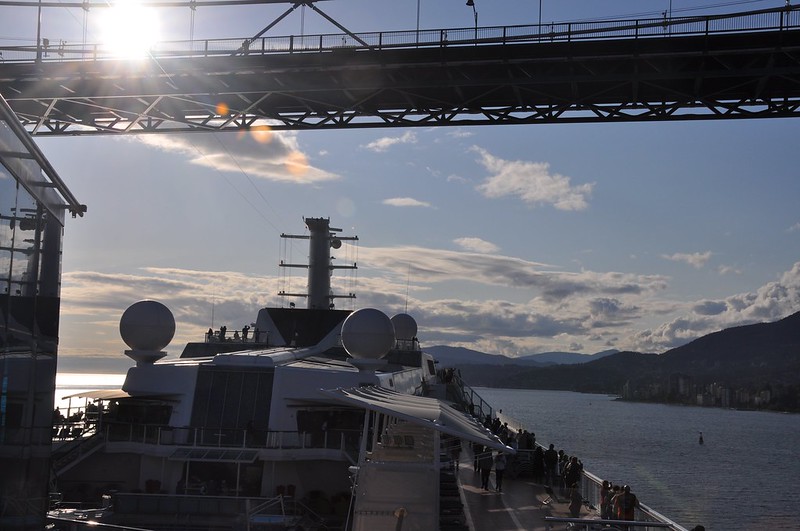
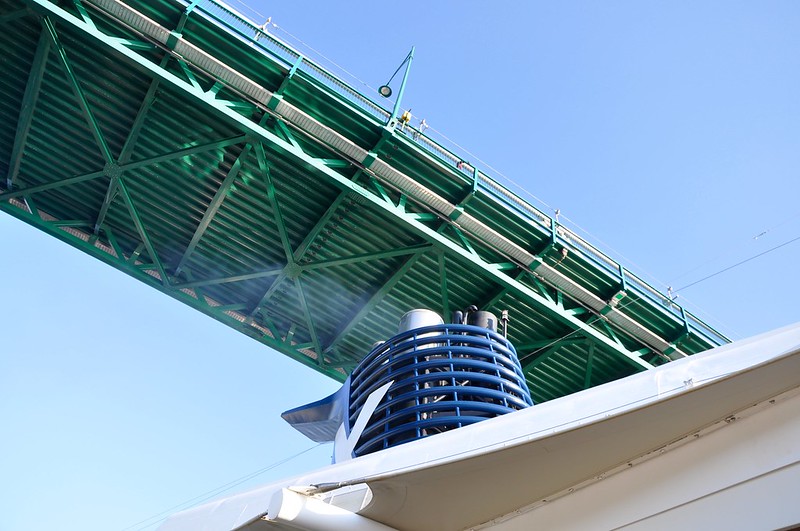
-
If you cruised on "Celebrity Infinity" returning on July 9th - here is how it looked passing under the Lions Gate Bridge...
That's a great video! Did you take it from the bridge with the camera on a pole? How do you avoid camera shake caused by the traffic going over the bridge?
-
June 5: Berlin (Day Three, Part Four)
After leaving the Topography of Terror, the next few blocks of our walk passed through the heart of Berlin’s “tacky tourism” zone. Across the street from the Topography of Terror you will find “Currywurst at the Wall” and a number of souvenir shops.
Tourist opportunities like Trabant convoy tours, the Trabant Museum, and the Berlin Wall Panorama stretch all the way down Zimmerstrasse and around the corner to the location of the former Checkpoint Charlie, on Friedrichstrasse. This former border crossing point is now “restored” and you can have your photo taken there. The Haus am Checkpoint Charlie museum is also located here, just across the street from McDonald’s.
We left this very crowded area behind and carried on down Friedrichstrasse, which became more of a residential area as we approached the Jewish Museum. The museum consists of an 18th century building connected by an underground passageway to a new building designed by Daniel Libeskind. If you are from Toronto (or anywhere else with one of his buildings), you will recognize Libeskind’s style immediately.
The lighter-coloured vertical blocks that you can see in the lower right of the picture are the “Garden of Exile,” accessible from inside the building.
Security was tighter here than anywhere else that we visited except the Reichstag: there were guards outside, no parking in front of the museum, and scanners at the entrance. I was reluctant to give up a piece of photo ID in exchange for the audio guide, but I was persuaded by the worker behind the counter that they would make sure that I didn’t accidentally depart without it.
The Jewish Museum is simply outstanding. This is not a “Holocaust Museum” per se. It illustrates Jewish culture and the history of Jewish communities in Germany, and it does that well.
That said, it is the lower floor Holocaust portion of the museum that I remember best. This section of the museum emphasizes the void left behind by the absence of the Jewish population; it evokes a sense of loss through individual stories and by linking material objects with information, often fragmentary, about their former owners. The architecture echoes the theme through “voids” in the structure. After you walk through the Axis of the Holocaust and step into the Holocaust Tower, listening to the door clang shut behind you is chilling. Menashe Kadishman’s installation, “Shalekhet” (or “Fallen Leaves”) is extraordinarily moving and not to be missed; the faces that you see in the image below are iron discs, about the size of your hand, and they are placed at the foot of a tall narrow concrete cylinder — another of Libeskind’s voids.
Other sections of the museum are informative about religion and culture, and are well worth your time as well. A temporary exhibition about head and body coverings (“Cherchez la femme”) was interesting and thought provoking. The only negative thing I have to say about the Jewish Museum is that it is (intentionally) disorienting and it’s difficult to find your way around. You might want to bring a ball of string that you can tie to your travelling companion, to prevent them from becoming lost.
[More information on the architecture here: https://www.jmberlin.de/en/libeskind-building ]
For this site, I had made an exception to my “selected highlights only” approach to museum-visiting; it’s open late, and I really wanted to see most of the museum. I did see quite a bit, but I had to call it quits after a couple of hours because of the effects of the cold/flu/plague that I was afflicted with. There came a point beyond which it made no sense to keep plodding along.
No matter how sick I am, I always insist on being fed. We had not yet been to the Hackescher Markt area, so we took the s-bahn over there.
We ended up ordering pizza and salad at a little hole in the wall place. I am sorry to say that except for the little sausages at breakfast and the occasional golden-coloured beverage we did not try any German specialties while we were in Berlin — not even a currywurst. I had originally planned one night at a beer garden with German food because DH has German heritage and I thought he would like it, but he opted out of that. At the end of our busy days of touring around, we were always just looking for a fairly quick meal, and not a dining experience. Sorry, foodies, about the lack of useful content on this thread.
After dinner, we took our last s-bahn ride back to the Hauptbahnhof. No bands on the platform to greet us. Packing up again. General glum-ness all round, as is often the case on the last night of a terrific holiday.
-
June 5: Berlin (Day Three, Part Three)
It was sunny and fairly warm, so we stopped for a mid-day beverage in an outdoor café and then walked over for one more shot at getting into the law library. No dice. From here, we took the #200 bus over to the Mohrenstrasse stop to begin a bit of a walking tour. Heading south on Wilhelmstrasse, we paused at the former headquarters of the Luftwaffe, an example of Third Reich architecture. The building is totally lacking in humour and humanity and is now occupied by the German Ministry of Finance. Draw your own conclusions.
In the “dangling from bits of string” category, there was a tethered balloon ride across the street.
This no doubt provides amazing views of the city; I was kind of envious of the people up there with their cameras. At the same time, I was glad to have two feet safely on the ground, even if it meant having to dodge small flocks of segway riders.
The Topography of Terror was our main destination in this area. It is home to an outdoor exhibition, “Berlin 1933-1945: Between Propaganda and Terror,” which details how Hitler’s National so-called-but-not-in-any-way Socialist Party gained and then exercised power. [Web site: http://www.topographie.de/en/]
DH considered this stop to be a highlight of his time in Berlin; I was leaning more towards the point of view of a Trip Advisor reviewer who had commented, “Why not just buy a book?” The exhibition is essentially laid out like the pages of an illustrated book, and the indoor exhibition is similar in style.
Still, reading this material with the rubble of the former institutions of fascist terror visible in the background was a different experience from reading similar content at home. The exhibition is very well done, weaving individual stories into the larger narrative. It’s a reminder, really, that choices were made and Hitler’s rise was not inevitable.
The site is bordered by a long section of the wall, now crumbling.
I was crumbling a bit myself by this point; a holiday cold was starting to get the better of me.
-
June 5: Berlin (Day Three, Part Two)
After the Pergamon, we visited the Neues Museum, right next door. We had a timed admission, just in case, but we did not need it here; we just walked right in. There are many highlights to this multi-faceted institution and we spent more time here than at the Pergamon. [Neues Museum web site: http://www.smb.museum/en/museums-institutions/neues-museum/home.html ]
Nefertiti is the face of the museum, as you can see in this banner hanging outside the entrance.
No photos are allowed in her presence, but we were lucky to be able to spend some time with her without the pressure of crowds around us. Your mileage may vary, but I would say that even on a busy day it’s not likely to be nearly as much of a mob scene as visiting the Mona Lisa. I can attest to the fact that she is in very good shape, considering her 3300+ years. Point of clarification: I don’t think I am violating etiquette here. Nefertiti is dead; it is never actually appropriate to say this to a living woman whom you are just meeting for the first time, or to her husband. Ahem. [There is an interesting Newsweek article about Nefertiti’s rightful place of residence here:
http://www.newsweek.com/frankenstein-art-nefertiti-egypt-germany-ugly-pharoah-351469 ]
Shiny golden things — very old shiny golden things — also live at the Neues. The “golden hat,” for example, is over 3000 years old; it lives in a small room where its significance is explained. A fascinating object. (No good photos; it’s dark in there.)
Archaeologist (and smuggler) Heinrich Schliemann claimed that this diadem and necklace belonged to Helen of Troy, but it is actually dated to about 2200 BCE.
Not on the highlights list, but who would not love this little pet monkey eating a fig under the chair of "chief of the craftsmen Amenemope and his wife Hathor”?
A couple of additional shots of Museum Island. This is the Alte Nationalgalerie, which we did not visit.
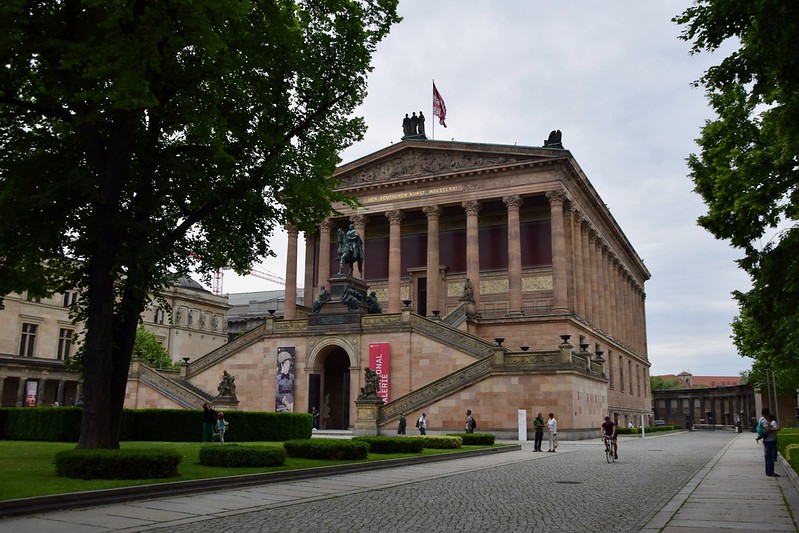
A colonnade stretches from the northern end of the Alte Nationalgalerie around to the Altes Museum.
Museum Island left us with a better understanding of the meaning of the phrase “world heritage site.” Our time spent here had been an even more rewarding experience than I had expected it to be — hence the excessive detail in these last 2 posts. I will try to move things along a bit more quickly for the rest of our day.
-
WWLLPS I wonder?
Idk but lol :D
-
June 5: Berlin (Day Three, Part One)
Our holiday was finally drawing to a close, and this would be our last day in Berlin. We had another busy day ahead: Museum Island again in the morning, then Topography of Terror, Checkpoint Charlie area, and finally the Jewish Museum. Fortified with some comb honey and a few more of those little round sausages, we were on the s-bahn by 9:00 am.
We had time to check out the very charming swimmer statues along the bank of the Spree opposite Berlin Cathedral. I don’t think you could pay me to swim in that water, but they did not seem to mind. I was in luck — no selfie-takers in sight!
Then we crossed the bridge to Museum Island.
If you will be in Berlin on a Monday, it’s a good idea to start your planning by checking to see what attractions will be open that day. All over Europe, many museums are closed on Mondays.
For popular museums, like the Pergamon, it’s a good idea to reserve a timed entry admission. We were able to do this even though we had museum passes. To do so, we started at this web page:
http://www.smb.museum/en/plan-your-visit/prices-tickets.html
Scroll down the page to the “1-day ticket” section, and then click on “buy ticket” for the museums that you are interested in. From here onwards, everything is in German, but you can more or less guess what is going on, and you may also find Google translate to be helpful. I just picked a category of admission that said “frei” (free) and reserved on that basis; my reservation was accepted without question at the door. I felt completely German when I received my confirmation notice addressed to “Frau ___ .”
The Pergamon is the busiest museum in Berlin. It houses Islamic and Middle Eastern art and monumental structures; much of the museum, including the Pergamon Altar, is not accessible due to a massive renovation project that will not be completed before 2025. [Pergamon Museum web site: http://www.smb.museum/en/museums-institutions/pergamonmuseum/about-us/profil.html ]
The Ishtar Gate, originally constructed about 575 BCE, is still open for museum visitors. And this is what greets you upon arrival:
We had arrived at the Pergamon about 10 minutes before the opening time of 10:00 am. There was already a long line, which we bypassed with our timed entry tickets. We soon had our belongings stowed in the cloakroom, our audio guides in hand and, when the museum doors opened, we were one of the first ones inside so we were able to enjoy this area before it became crowded. (As we were leaving, we noticed signage indicating that those at the back of the line would be waiting almost an hour for entry. Judging by the number of stanchions and taped lanes that were still empty, a two-hour wait would not be unusual.)
The processional way stretches from the Ishtar Gate along the length of the building, and it is lined with bas-relief lions and bulls.
Here is a little excerpt from Wikipedia about the Pergamon’s reconstruction of this structure: “One of most complex and impressive architectural reconstructions in the history of archaeology, was the rebuilding of Babylon's Ishtar gate and processional way in Berlin. Hundreds of crates of glaze brick fragments were carefully desalinated and then pieced together. Fragments were combined with new bricks baked in a specially designed kiln to re-create the correct color and finish.”
Of course, besides the Ishtar Gate, there is a lot more to see at the Pergamon. This scene is part of a floor mosaic from the dining room of a Roman house; it dates from about 200 CE.
Hmm … I can’t find a single trace of humour in this post! I just can’t think of anything amusing to say about the Pergamon. That must be why this thread has been lying dormant for two days.
-
Hi Jay! It was nice to meet you on this cruise. Thanks for the touring tips that you provided on the roll call. Looking forward to hearing about your Baltic cruise experience.
-
June 4: Berlin (Day Two, Part Three)
So back to Gleisdreieck u-bahn station we went. I think you need to know that the u-bahn cars are cheerfully yellow and that they have little Reichstags all over their windows and doors.
Also, U2 is not just the name of an over-rated band. As far as I could tell, though, there is no Led Zeppelin line in Berlin, which seems like a major oversight.
Next stop was the Gemaldegalerie, which was the Plan B replacement for the Allied Museum that we had dropped from the itinerary because of the rain. Yes, the Gemaldegalerie should really have been on Plan A, but I was trying to be at least half-heartedly respectful of DH’s limited tolerance for art galleries. I consoled him by telling him that it would be closing at 6pm so by the time we got there he wouldn’t have much more than an hour of suffering to endure. I hadn’t researched the highlights of this museum at all, so for me this was a wandering-around-being-surprised-and-delighted kind of hour. “Oh, look! There’s a Botticelli!” The museum also has a large collection of works by Rembrandt, and I loved this Titian portrait of a little girl.
In case you are wondering, Titian did give his subject a pair of feet but I accidentally cut them off in this shot; clearly, Titian is a much better artist than I am. The museum was not crowded at all, so this was an enjoyable hour or so.
I was thankful for the rainy weather that brought us to the Gemaldegalerie, and this is one of the museums that I would return to if I ever went back to Berlin. I was also thankful, here and at many of the other places that we visited here, for the really good audio guides that added so much to my appreciation of the works on display.
[Gemaldegalerie web site: http://www.smb.museum/en/museums-institutions/gemaeldegalerie/home.html]
Switching gears rather drastically, we went from the Gemaldegalerie straight to the Spy Museum near Potsdamer Platz. They are only a kilometre apart but, due to the persistent drizzle, we took bus #200 for the short hop. The Spy Museum opened in 2015 and it was not even on my radar until very shortly before we left home; I added it to the “if we have time and energy” list. I made note of it particularly because it closes at 8 pm, later than almost all of the museums on my A-list.
[Web site for the Spy Museum: https://www.deutsches-spionagemuseum.de/en ]
[There is also a short youtube video here:
]It’s a very high-tech and interactive experience; lots of buttons to push, voices to hear, and big computer screens with brightly-coloured displays. The entry is via these stairs with constantly changing illuminated graphics; you might be able to see DH’s feet at the top of the stairs where he is patiently waiting for me to finish taking pictures.
There are also many traditional display cases with interesting artifacts. There is an exhibit about coding technology through the ages, including a German Enigma machine from the Second World War. You can see an assassin’s glove incorporating a single-shot pistol; items from James Bond films; a shoe with a microfilm compartment in the heel.
A member of the East German State Security Service received a 600 mark bonus for coming up with the idea of a camera hidden in a bra … not sure about Cruise Critic’s regulations regarding photos of lingerie, so I decided not to post that shot.
There is even a section that explains how scientists are training honey bees to “sniff out hidden bombs.” This does at first sound like a good idea, but who’s going to make the honey if the bees are all busy sniffing out hidden bombs?
I lined up with the kiddies for my turn at the “interactive laser obstacle course.” This is a sort of tunnel with moving laser beams; in the movies, someone with acrobatic skills leaps and somersaults through the laser beams to steal the valuable object or enter the forbidden space. It looks pretty easy in the movies but … I lasted 5.3 seconds, and 3 of those were spent trying to decide whether I should just gracefully back out. DH watched through the viewing window, shaking his head in disbelief. Along with the link to a video of my attempt, the museum sent me encouraging news: “Don’t give up! If you visit us again, you will certainly become a top agent. Train for next time!” It was satisfying to know that someone at the Spy Museum had viewed the film and recognized my potential. I highly recommend this museum, especially for families.
The museum makes the most of Berlin’s fame as the “capital of spies.” Just on a side note … Mary Beth, if you are still reading along … you said that you and your husband were “translators” in the 1970s, right? Just checking (and just kidding!)
When we left the Spy Museum, the sky was much brighter. We walked back through the collection of modern high-rise buildings that make up the revitalized Potsdamer Platz, and had dinner at Sony Centre again. Took the necessary shot of the roof with some blue sky behind it, and then headed “home” to the Steigenberger. It had been another great day in Berlin.
-
Norris, glad that you are still on board. I was in Munich for a few days back in the mid-70s, but that was a much different kind of trip: backpack, rail pass, and youth hostel membership. To be honest, Munich did not make the best impression on me. But the great experience we had in Berlin and Rostock on this trip leaves me keen to spend more time in Germany, and maybe I will get back to Munich some day.
June 4: Berlin (Day Two, Part Two)
The road transportation section of the German Museum of Technology is located in a separate building just around the corner. DH is a lot more interested in automobiles than I am, but I still thought it was an interesting collection — everything from walking sticks and a horse-drawn carriage to racing cars.
The main thing that I learned there is that making a car seems to be a bit more complicated than making a suitcase, and so I cancelled the kit I had ordered from Amazon.
There were all kinds of automobiles on display, including the classic East German Trabant. We saw Trabants on display at three different museums in Berlin; I think that the curators must have obtained a group-purchasing discount.
A gleaming amphibious car. Not a big seller, apparently, but I can’t understand why not.
Eventually we fled from Kiddie Central and sought temporary refuge at BRLO, a newly-opened brewery restaurant built out of shipping containers. Interesting space.
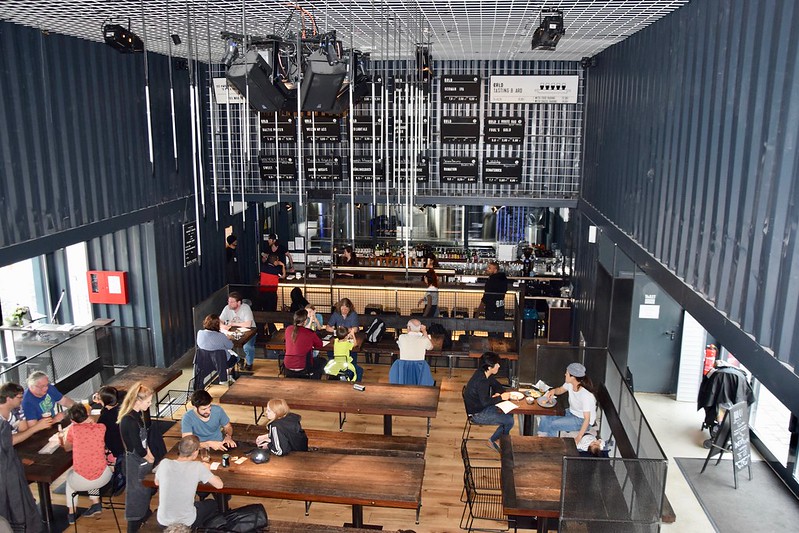
Learned so many things today: this is how they make the beer.
We were definitely not the target market for this place. The pleasant young server was enthusiastically explaining the complicated concept of the mostly vegetarian menu to us: pulled smoked mushrooms with BBQ sauce, pickled something-or-other … there was even a subsection labeled “fermented vegetables” that included “German kimchi.” Then I think the server must have looked at my face because she gave up, flipped the menu over and said, “We also have a chicken sandwich.” Surreptitious glances at nearby tables informed me that three out of four of them had also ordered the chicken sandwich. We must have happened along during their monthly open house for non-hipsters. They had some nice cider, and they let us stay long enough for me to drink two of them, and that was as much “time off” as I was prepared to allow us for this afternoon.
-
Thanks, bluebelle, glad you are enjoying the review.
June 4: Berlin (Day Two, Part One)
When we came home from this trip, we told everyone, “The weather was fantastic!” We seem to have installed a permanent mental filter that prevents us from remembering that we did have some showers and that it rained steadily for most of our second day in Berlin. But when I look at our pictures, I do see umbrellas and a whole lot of grey.
We took the short u-bahn line #55 from the train station over to the Brandenburg Gate and then switched to our friend, bus #100, for a ride through the beautifully green Tiergarten. We got off the bus to look at the Siegessäule, a column erected in the late 19th century to celebrate Prussian military victories. We looked at the column. Then we looked at each other and wondered why we were standing under an umbrella in the rain looking at this monument. And then we got back on the very next bus. I don’t think that anyone who likes to climb things is still reading this thread, so I won’t bother mentioning that the column is climbable.
Although it was a Sunday, the building was supposed to be open. But it wasn’t. Tour busses were dropping people off and we all milled about together for a while and then left. A baptism prevented us from entering the modern church next door. I would have liked a little peek inside, but the two churches’ symbolic message about war and peace is easy enough to read from the outside. The 2016 terrorist attack on the Christmas market at this location was also on our minds. [information on the churches here:
http://www.aviewoncities.com/berlin/gedachtniskirche.htm ]
From here, we took the u-bahn over to Gleisdreieck station to visit the German Museum of Technology. [Museum web site here: http://sdtb.de/museum-of-technology/623/ ]
It was unfortunate that our plan to visit this museum coincided with the poor weather. Many families had apparently received a memo indicating that this is an ideal venue for a rainy day outing. As a result, this was the only Berlin museum where we actually had to queue up outside.
The lower floors were crowded and I hold Thomas the Tank Engine personally responsible for this.
Many children were there to see trains, I suppose, and there were plenty of locomotives on display. Little ones, big ones, and one very very big one — so big that I could not even fit it into the frame, even with my wide-angle lens. The museum did not gloss over the role that the railways played in making the Holocaust possible, so that was a sobering section amidst the generally celebratory approach to technology. There are also sections on textiles, chemistry, jewelry-making, brewing (closed on Sundays), computers — and suitcase-making, of all things. Suitcase-making? I especially enjoyed the excellent photography section on a slightly quieter upper floor.
I thought it was an old-fashioned kind of a place, but very enjoyable nevertheless.
-
Sea days will never be the same.... :loudcry::loudcry:
I don't mind X "adding" new "for a price" items but to remove a favourite and replace it will be hard to swallow (unlike the mast burgers which were delicious).
Agree 100%!
-
Hi all,
We are in Oslo from early until 11:00pm. I was wondering if any cruisers had used the OSLO 24 pass and had an itinerary that worked well for them. Happy to visit most places.
Thanks
Lu
Kaisatsu has given you some good suggestions in the post above. We bought Oslo passes and made good use of them in May of this year, visiting many of the places suggested in Kaisatsu's itinerary. Had a great day in Oslo. Did not buy the passes online or use the app; we bought the hard copy version on arrival at the Thon Panorama hotel which is about a 10 minute walk from where the ship docks. We docked early so did not want to wait for the tourist information centre to open.
If you are interested, I am still working on my photo review of that Baltic cruise on the Celebrity Silhouette, but the Oslo section is done. It has photos of the places we visited using the pass. It's posted over on the Celebrity board; Oslo posts start on page 3.
http://boards.cruisecritic.com/showthread.php?t=2513199&page=3
Norwaylady, thanks for starting this thread and answering questions. It was very helpful to me when I was planning my trip.
-
June 3: Berlin (Day One, Part Five)
We were really running out of steam after our Reichstag tour, but we nevertheless took the u-bahn to the Sony Centre at Potsdamer Platz for dinner. We ate at a restaurant called Alex, located in the lively indoor plaza next to a movie theatre.
Food was good, and DH tried another one of those German beers. Every couple of years I try a sip of beer to see if I like it; I never do. I am not sure how so many people can have acquired a liking for something that tastes so awful.
I confess that I had chosen this restaurant only because I wanted to have an excuse to go to Sony Centre and take a photo of its unique roof. [Disclaimer: this picture of the roof was taken the next day because it was too grey to photograph the roof on day one.]
Our journey back to the hotel took us through the Hauptbahnhof once again. Festival energy had not yet run out. We encountered a band of young people holding an impromptu jam session on one of the platforms while waiting for their train.
Nearby, the members of another band applauded; one or two of them even joined in on drums and horns. It was a hoot, and a fun ending to our first full day in Berlin.
-
June 3: Berlin (Day One, Part Four)
There are two main options for visiting the Reichstag: a self-guided visit to the dome and roof terrace only, or a guided tour of the building (60-90 minutes) followed by the self-guided visit to the dome. Either way, for security reasons, you must reserve in advance for a particular timed admission slot.
[information on tours and visiting the dome: https://visite.bundestag.de/BAPWeb/pages/createBookingRequest.jsf?lang=en ]
We had reserved for the guided tour, but we probably should have planned this for first thing in the morning rather than at the end of a full day of sightseeing. The tour was interesting: we learned about how the German parliamentary system works; we saw various art works in the building that are not otherwise accessible to the public; and on some of the original walls of the building we saw the graffiti and bullet holes that date to the capture of the building by Soviet troops at the end of the Second World War.
We were taken to the visitor’s gallery of the plenary chamber. Angela Merkel’s seat is the one with the slightly taller back in the front row behind the podium. On the wall is the “fat hen”; that’s what our tour guide called the eagle on the wall.
There were a lot of stairs (I repeat, a LOT of stairs) and the tour seemed overly long. After a while I found myself looking at my watch and wondering how much longer it would be before our tour guide delivered us to the elevator that would take us up to the base of the dome. As I understand it, each tour is different and the guides decide on an individual basis what they will discuss and what you will see, so your mileage may vary.
The dome itself is a cooler than cool architectural addition to the historic Reichstag building.
It sits above the parliament chamber’s glass ceiling and it has a funnel-like structure in the middle that delivers light and fresh air to that room. Sounds like a good idea; most governments can probably benefit from additional light and fresh air.
A spiral ramp leads from the floor of the dome to the top.
I wasn’t sure if I would be able to climb the ramp, but upon arrival I judged it to be sturdy and not scary at all, despite the glass railings. You really don’t notice the climb because the incline is very gradual. An audio guide provides information about what you are seeing outside as you climb. It’s worth going all the way up for the fantastic views out over the city, although it was bit too dark and grey for good photos when we were there.
-
June 3: Berlin (Day One, Part Three)
If you don’t already know this before you arrive in Berlin, you will quickly find out that the #100 and #200 busses are your friends. These busses run very frequently through central Berlin; they will get you close to many of the sites that you might want to visit and will save some wear and tear on the soles of your shoes. No need to wait around for a HOHO bus. The #100 even has its own web site: https://www.visitberlin.de/en/explore-berlin-bus-100
If you are going, here’s a useful map of the two bus routes: https://www.google.com/maps/d/viewer?mid=1JRj_-U7StaQ_nPdyaCjzDckxE1U&msa=0&hl=de&ie=UTF8&ll=52.522592999999986%2C13.390445999999997&spn=0.055566%2C0.154324&t=h&z=13
We took the #200 from the stop in front of Humboldt University over to the Behrenstrasse/Wilhelmstrasse stop to visit the Holocaust Memorial. I don’t know what to say about this monument; I found it very moving, and it is disturbing to see people treating the site as a sort of playground. Even if you are on a day tour from the Rostock area, you are likely to visit it and so you will have the chance to experience it yourself.
[There is a lot of information about this memorial, formally known as the Memorial to the Murdered Jews of Europe, on Wikipedia: https://en.wikipedia.org/wiki/Memorial_to_the_Murdered_Jews_of_Europe ]
From here, we were headed to the Reichstag, but we immediately became caught up in a tsunami of teenage gymnasts. There was a huge gymnastics festival taking place and people were gathering for an evening event in the Tiergartern. Everyone was in a good mood, even the police, and it was kind of fun to be part of the crowd.
The gymnastics groups all seemed to have their own marching bands. Or maybe there were two separate festivals going on; I am not sure. Either way, we enjoyed all the youthful enthusiasm and energy on display in Berlin while we were there. Everywhere we went that weekend we seemed to encounter gymnasts or marching bands; when I think of all the gatherings that we might have run into instead, I was thinking that we struck it lucky.
We tried to walk through beside the Brandenburg Gate but the pedestrian pathway was blocked off.
We did eventually arrive at the Reichstag just in time for security clearance procedures prior to our early evening guided tour.
-
If you are docked at Langelinie, Nyhavn is walkable, as Pushka has indicated. It could take you anywhere from half an hour to an hour, depending on the stops you make. You could pass the Little Mermaid, Kastellet Fort, the Gefion Founain,the Amalienborg Palaces ... there is a lot to see along the way and it's a very nice walk. Netto boats and others leave from both Nyhavn and Gammel Strand. You can find a good deal of useful information on the Northern Europe ports of call forum. Danish Viking's Copenhagen thread has a wealth of current information, so you might want to check that out.
http://boards.cruisecritic.com/showthread.php?t=2488925
Enjoy Copenhagen and your cruise!
-
June 3: Berlin (Day One, Part Two)
Our cruise on the Spree River was only an hour, so we didn’t see a lot, but it gave us interesting views of Museum Island. Here’s the Bode Museum in the “prow” of the island. To make this photo more representative of modern-day Berlin, it has to include a couple of construction cranes, right?
We also travelled through the government quarter, and it was interesting to cruise between the buildings that are set right on the edge of the river.
In front of the Kongresshalle (also known locally as the pregnant oyster), we passed Moby Dick, obviously designed by someone with a great imagination. Wouldn’t it be fun to design a full-size cruise ship in the shape of a whale? What would we call it? Celebrity Cetacean? Blowhole of the Seas? Carnival Fluke? Norwegian Breach? Blubber Princess? The Whalendam? OK, I can hear you shooting down this idea, moving on …
It started to rain a bit, and our fellow passengers were pulling out umbrellas. After we got off the boat, the skies opened and the rain really started to come down. We ducked into the very nice café of the German History Museum for cake and coffee, so that worked out quite well. We were planning just a quick visit to this huge museum. Decided just to look at the period between the First and Second World Wars, a time of crushed possibilities in Germany and other countries of Western Europe. Workers of the world unite to sing the International in this 1929/1930 painting by Otto Griebel.
[The museum’s web site: https://www.dhm.de/en/besuch%20und%20service/ ]
We poked our noses into Humboldt University to have a look at something that I won’t describe because this post may already be Marxed out on socialist propaganda, so to speak.
We crossed the street to the law library where I hoped to see a stained glass window; unfortunately, the law library was closed. We tried again on Monday, but it was a holiday weekend so it remained closed. For those of you keeping track, this would be the THIRD library that I failed to gain access to on this trip; after having no luck in Helsinki or Stockholm, I was not really surprised when I tugged on the door handle and it refused to budge.
The law library is located at the Bebelplatz, which is the site of the infamous book burning in 1933. Today, it is the site of a memorial: empty bookshelves visible through a glass window set into the square's cobblestones.
[information on the memorial: https://www.visitberlin.de/en/book-burning-memorial-bebelplatz ]
Hey … isn’t that the same random passerby that I used as a model in the Lilliputian cannon photo at Skansen in Stockholm? Small world!
-
June 3: Berlin (Day One, Part One)
Our plans for day one in Berlin included two of the museums on Museum Island, a river cruise, the Holocaust Memorial, and a tour of the Reichstag. It was going to be a busy day.
I suppose I use two methods of “doing” museums. Sometimes I might undertake a slow-paced voyage of discovery but, because our time would be so limited, for this trip I researched ahead of time and focused on particular galleries or exhibits that I thought would be most interesting. I did not want to spend an entire day in a museum (other than the Hermitage, which I have whined about at least once already). Most of our visits to museums in Berlin lasted somewhere between 1-2 hours, so we know that we were really just dipping our toes into very deep ponds, but that’s what suited us best. For some museums (Altes, Neues, Pergamon), I had downloaded iphone apps that helped us find the galleries and objects that “we” were most interested in seeing, so we were not wandering around aimlessly. [There is an overview of all the museums on Museum Island here: http://www.aviewoncities.com/berlin/museumisland.htm ]
On the way to Museum Island, we felt sorry for a fellow at a currywurst stand at 9:45am. This is the sad fate that can befall those who do not have the privilege of enjoying honey in the comb and the other delicious features of the breakfast buffet at the Steigenberger. Did I mention the little round sausages? As you can see, I am still thinking about those breakfasts and hoping to make friends with someone who keeps lots and lots of bees (and perhaps has a pillow chocolate farm as well).
Our first visit was to the Bode Museum. It’s probably the least visited of all the museums on the island but it may have been my favourite, because of the variety in the collection. This is one of the few museums that I would revisit if I were ever lucky enough to return to Berlin. There were only two other people waiting with us for a couple of minutes until the doors opened at 10:02 am. King Frederick Wilhelm I and his horse were there to greet us in the entrance hall.
We toured the ground floor exhibits, which include Italian Renaissance sculptures, Gothic and Byzantine art; most of the time that we were there, we would be alone in the galleries except for the security guard.
So many beautiful objects; I was drawn to this intricate 18th century ivory carving of the last judgement.
The upstairs galleries including the coin collection open at 11:00am but we planned to spend most of today’s allotted museum time at the Altes Museum so we did not tour the upstairs. Back in March we read about the theft from the museum of a Canadian maple leaf gold coin worth over $5 million (Canadian); just last week the police made several arrests in the case.
It's an interesting story, at least for Canadians:
http://www.cbc.ca/news/world/coin-heist-arrest-1.4200761
[info on the Bode Museum: http://www.smb.museum/en/museums-institutions/bode-museum/home.html ]
From the Bode, we walked over to the Altes Museum: Museum Island is very convenient for museum-hopping. The Altes contains mainly Greek and Roman antiquities. Also some shiny golden things! This elaborate necklace is made of gold coins with portraits of Roman emperors.
The Altes Museum is huge. This is the face of a 2000-year-old Greek funerary lion mimicking DH’s face when I told him that we had several more rooms to view after this one.
Eventually, DH escaped from the Altes Museum and I followed. This would be a good time to give our heads and our feet a bit of a break on a river cruise.
-
June 2: Berlin (Day Zero, Part Two)
Hmm, my computer wont let me move on without first posting a picture of chocolates. Must be some kind of glitch.
“Our” next destination was the Alexanderplatz and, as were walking in that direction, a herd of tiny hot rod cars went zooming by; full-grown adults in go-kart-ish vehicles that looked like they belonged in an amusement park. An unexpected sight — it looked like a lot of fun to me. Did not get a picture but there are photos on the company’s web site: http://www.hotrod-tour-berlin.com/homeberlin/homeberlineng/
We crossed over the Spree River twice, onto Museum Island and off again, passing the huge Berlin Cathedral.
After voting ourselves off Museum Island, we made a detour into a park so that I could have my photo taken with Karl Marx and his best buddy, Friedrich Engels. I was wearing my invisibility cloak at the time, so it might be difficult for you to spot me in this shot.
Farther along our path, people were sitting around the Neptune fountain enjoying the warm evening. I felt sorry for the figure in the foreground whose posture indicated to me that she may have been waiting there for decades for a bus that never arrived. The church in the background is the Marienkirche, or St. Mary’s. Like the fountain itself, the Berlin Cathedral, and many other buildings, it was heavily damaged during the Second World War. Much of what we see today is the work of restorers.
The Alexanderplatz is dominated by the TV tower. It’s the tallest structure in Germany, so there was not even half a chance that I was going up. We actually left the area quite quickly because it’s such a spindly-looking thing that I felt it might be in imminent danger of collapse. The wee building on the left is the 37-story Park Inn. Apparently you can pay money to jump off this building while wearing a harness that attaches you to the building with a piece of string. What is the world coming to? [More info — and terrifying videos — here: https://www.base-flying.de/?gclid=CIHxisSDitUCFU1lfgodB8gF4Q]
No one jumped while we were there, which is just as well because it might have caused me to faint. We took the s-bahn back to the hotel. As we exited from the Hauptbahnhof, the last rays of the sun lit up the Reichstag building in the near distance. That would be one of our stops the next day.
-
Hi Kim-sure miss you guys.
Teanne
Hey, Teanne. Were you looking for Kim's review? It's over here:
-
June 2: Berlin (Day Zero, Part One)
I wish I could get the dates right for these posts. The last Stockholm post should also have been dated June 2 … how hard can this be, really?
Our SAS flight from Stockholm was uneventful, as all flights should be. It was a sunny day, and I could see many of the city’s landmarks on our approach to Tegel Airport.
At the airport, we stopped at the Visit Berlin tourist information office to pick up our transportation and sightseeing passes. There are a LOT of options for both, and the young woman behind the counter gave me a huge smile when I told her exactly what I wanted and saved her the trouble of explaining all the options. There is the Berlin Pass, the Museum Pass, the Welcome Card (sub-divided into different zones), the Welcome Card + Museum Island, the Berlin CityTourCard (“for hipsters and youngsters”) … visitors should really plan out their itinerary ahead of time to figure out what pass will work best.
We planned to use the bus for airport transfers, and we were not travelling much beyond the city centre (not out to Potsdam, for example), so we bought 5-day Welcome Cards, valid for all transportation within zones A and B. https://www.visitberlin.de/en/berlin-welcome-card
And we bought the 3-day Museum Pass. This provides access to 50 museums, not just the ones on Museum Island. https://www.visitberlin.de/en/museum-pass-berlin
We made very good use of both passes and thought that they represented great value. The transportation passes were easy to use because, unlike some cities (Amsterdam, Stockholm, Vancouver), you don’t have to show the pass or tap in and tap out when you board most vehicles. You just keep your ticket safely in your wallet and present it if asked by an inspector.
Tegel is a small airport and it was no problem to find the bus stop outside. We boarded the TXL bus to Berlin Hauptbahnhof, the city’s main train station. These busses leave every 10 minutes or less, and it should have taken us about 20 minutes to get to our stop but traffic was heavy so it took about 40 minutes and we had to stand most of the way. This is not an ideal option for everyone, and a completely sane person might have taken a taxi, but where't the challenge in that? The bus dropped us at the north entrance to the station and, although the station is huge and very busy, it was a simple matter to wheel our luggage through and back out the south entrance.
We were staying at the Steigenberger Hotel Am Kanzleramt, right across the street from the station. There was nothing not to like about this property; room, service, and the included breakfast buffet were all great and we congratulated ourselves daily for making such a good choice. Best part was the bees: Steigenberger Hotels have their own hives and the breakfast buffet included honey still in the comb … so very delicious.
But I am getting ahead of myself with the breakfast description. By the time we had dropped off our luggage in the room it was almost 5:30 pm. We decided to have an early dinner at Hans im Gluck at the station; this place would probably describe itself as a gourmet burger chain but that would be a bit of an exaggeration. We were not particularly impressed with the food, but it was a warm evening and they had a nice patio and DH had his first German beer, so dinner was not a complete write-off. The restaurant is located next to the “Rolling Horse” sculpture, which I rather liked.
Berlin has a complicated public transportation system which is a result of its being a divided city for decades. Work is still being done on integrating the networks of the s-bahn (local and suburban trains, often elevated), u-bahn (city rapid transit of the former West Berlin, mostly underground), trams, and busses. For now, the u-bahn line from the Hauptbahnhof runs for only 2 stops to the Brandenburg Gate, where it connects with the rest of the u-bahn network. We usually found that the s-bahn was the most convenient way to get started on our day’s adventures. We took our first s-bahn ride to Friedrichstrasse Station and began our walk there.
To get to our first stop, we crossed Unter den Linden, the most famous avenue of the former East Berlin, with beautiful views in both directions and lots of construction underway. Our initial destination was the Gendarmenmarkt, a grand public square bordered by the Berlin concert house and two almost-identical domed churches known as the German Church and the French Church. The long evening shadows added some drama to the views.
I had read about a chocolate shop in pjs678’s “Russian around the Baltic” review and I tucked that information away for later use. So while at the Gendarmenmarkt we stopped in at Fassbender and Rausch to take a look at the replicas of various Berlin landmarks crafted out of chocolate. This one’s the Reichstag.
This stop was not in any way motivated by the possibility of obtaining pillow chocolates, but we did pick up a couple of treats and sat down on the red-carpeted steps of the Konzerthaus to eat them.
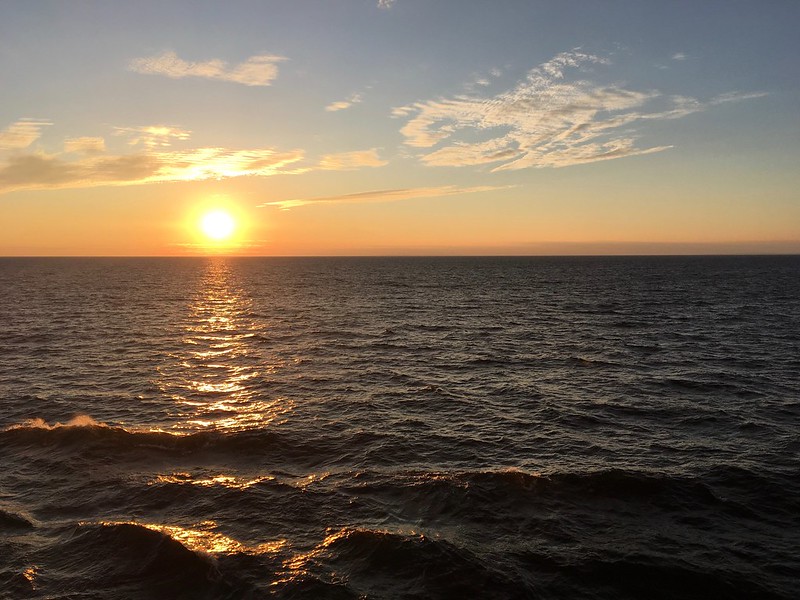
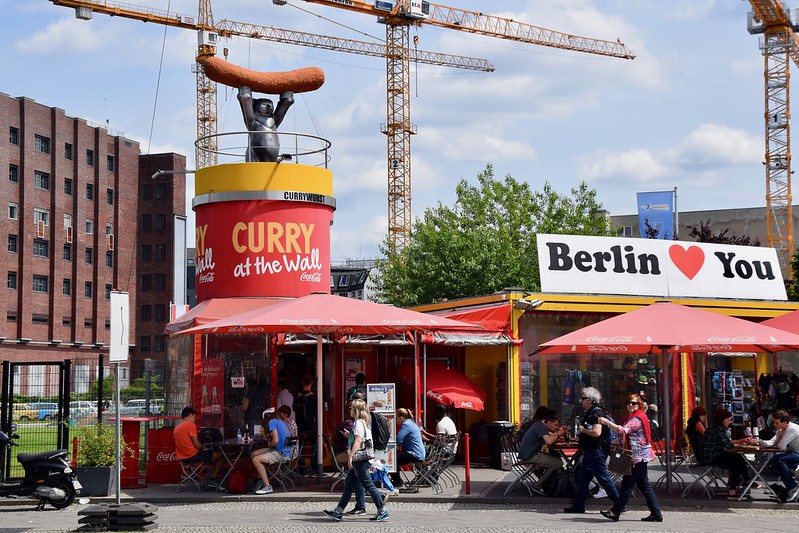
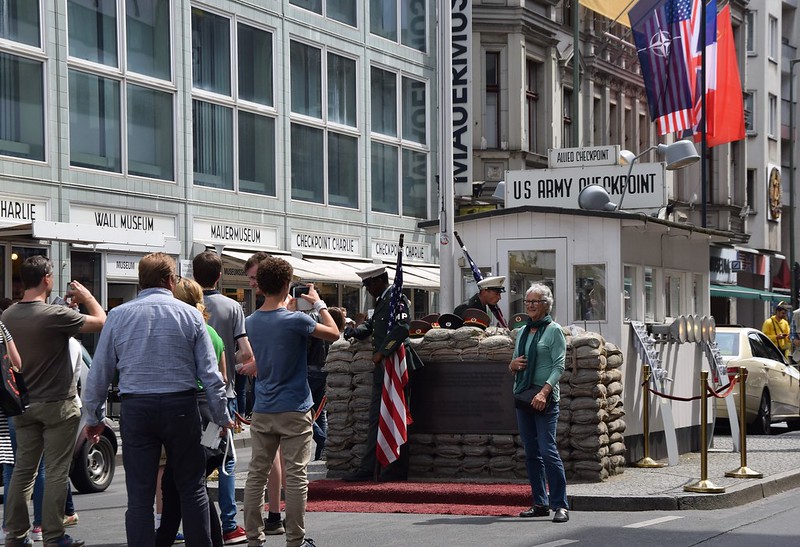
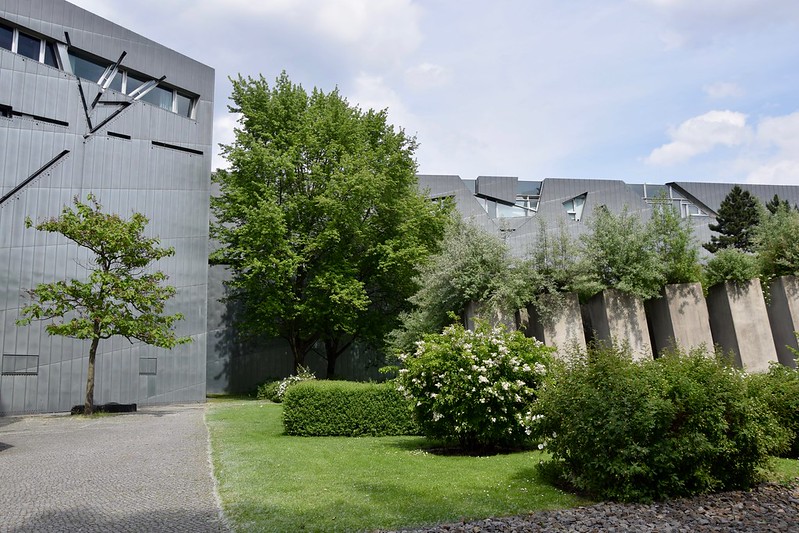
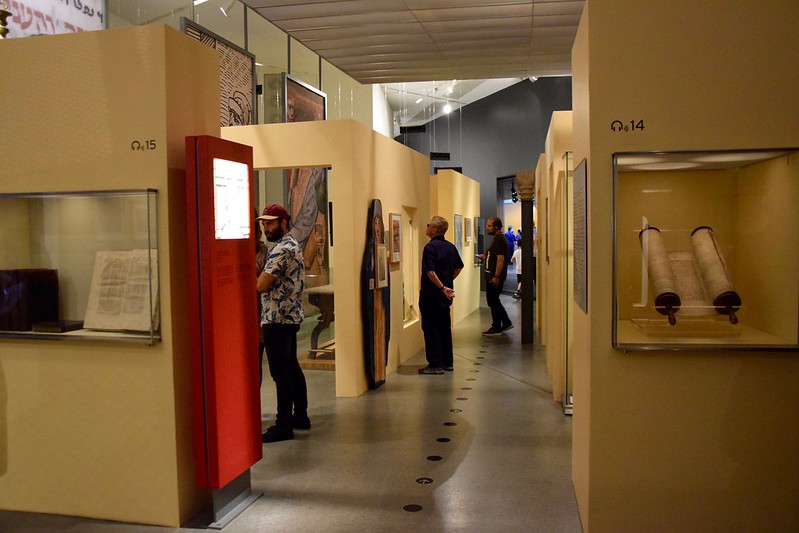
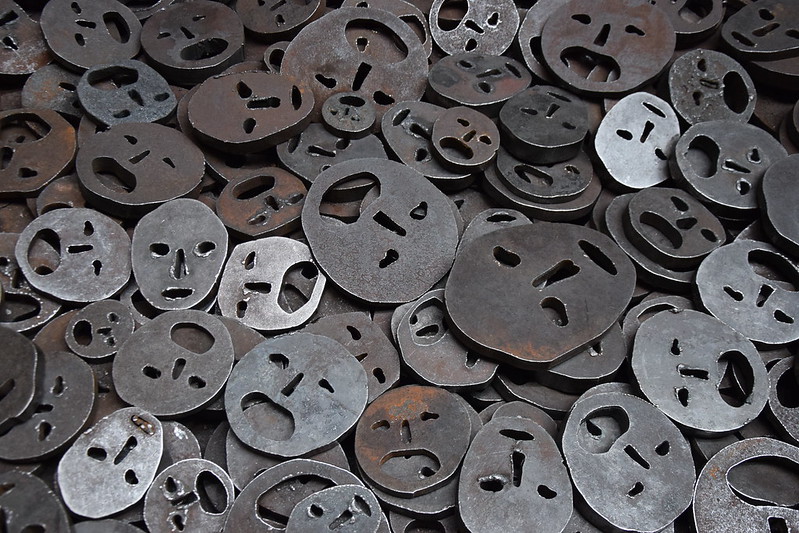
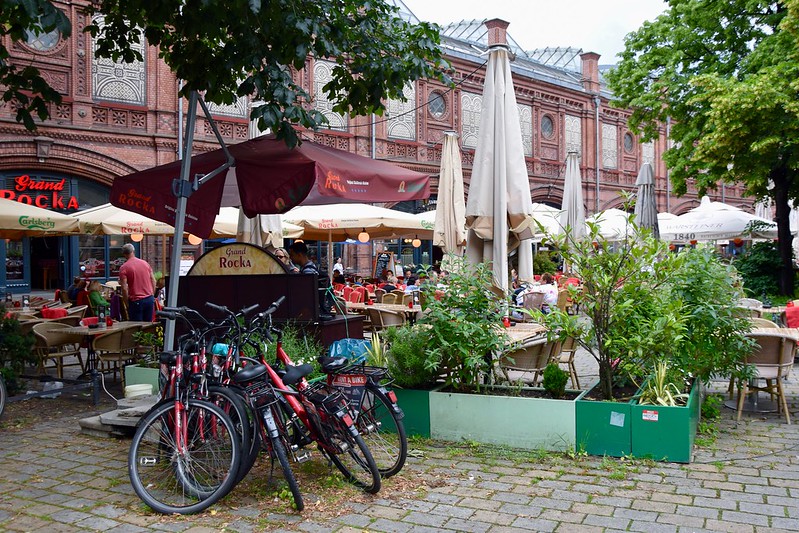
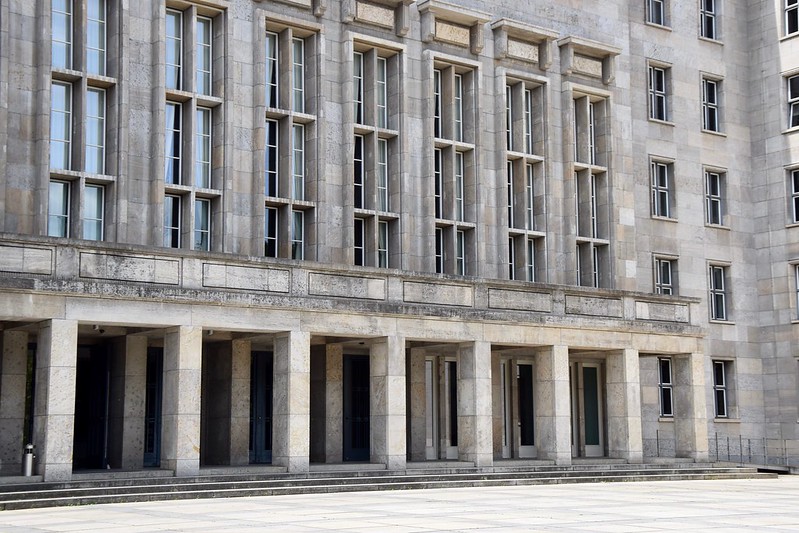
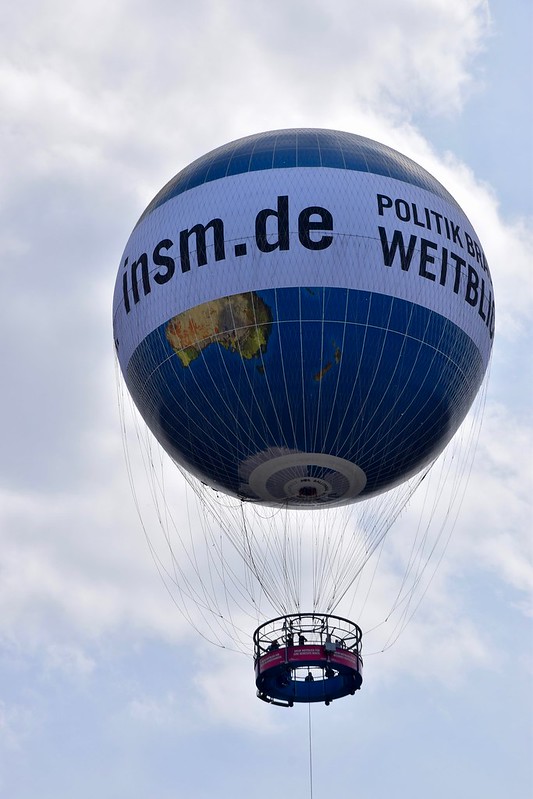
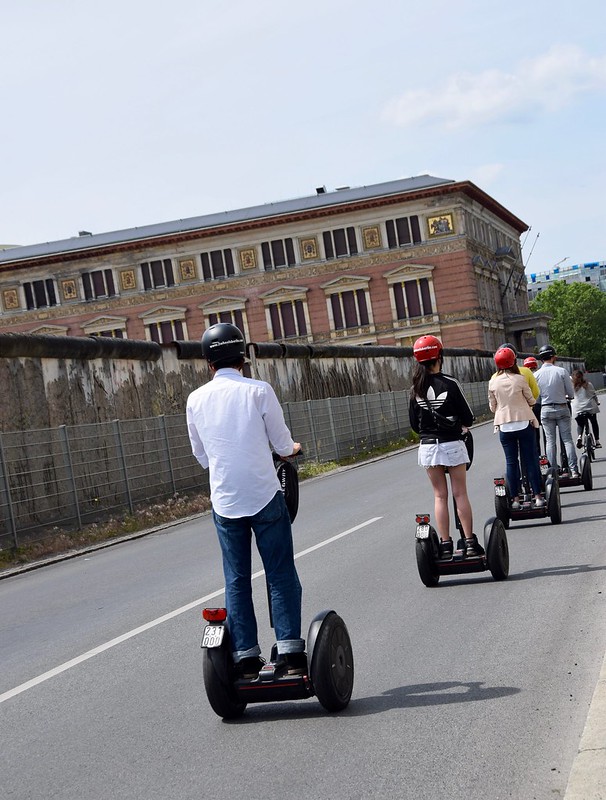
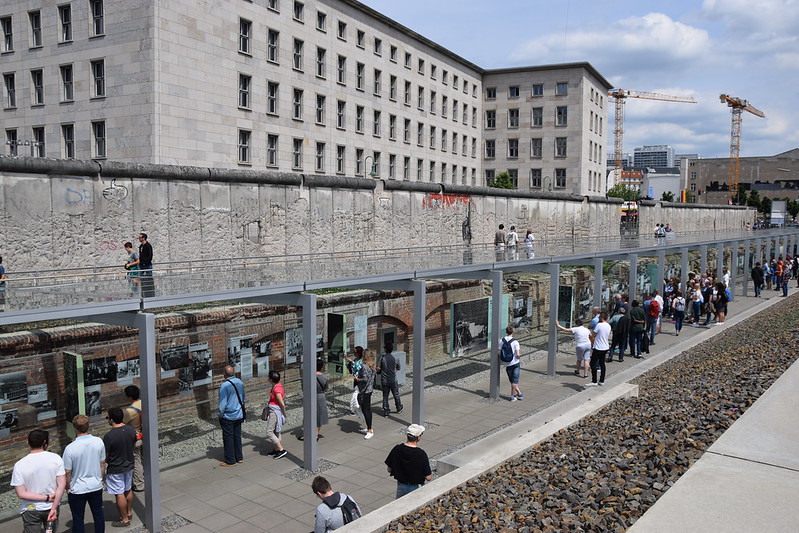
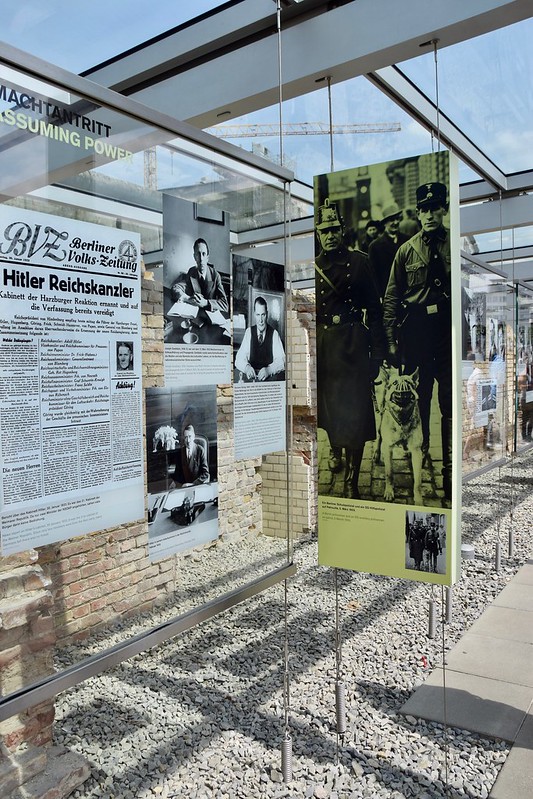
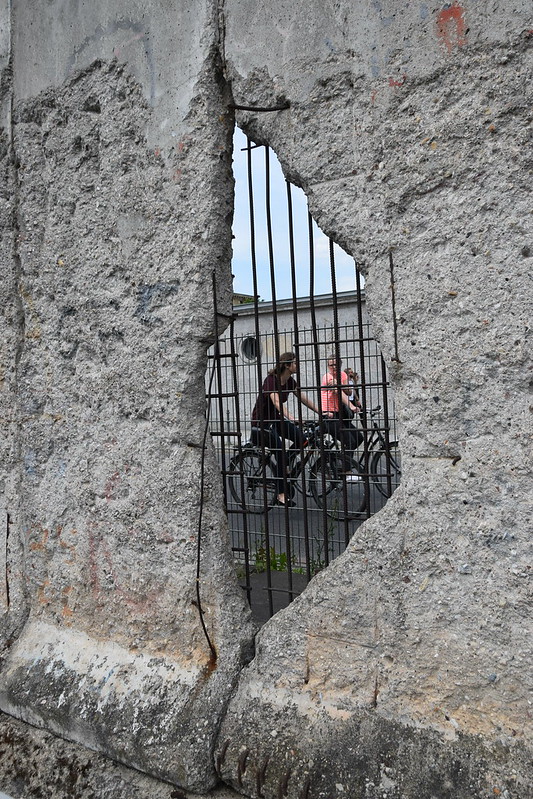
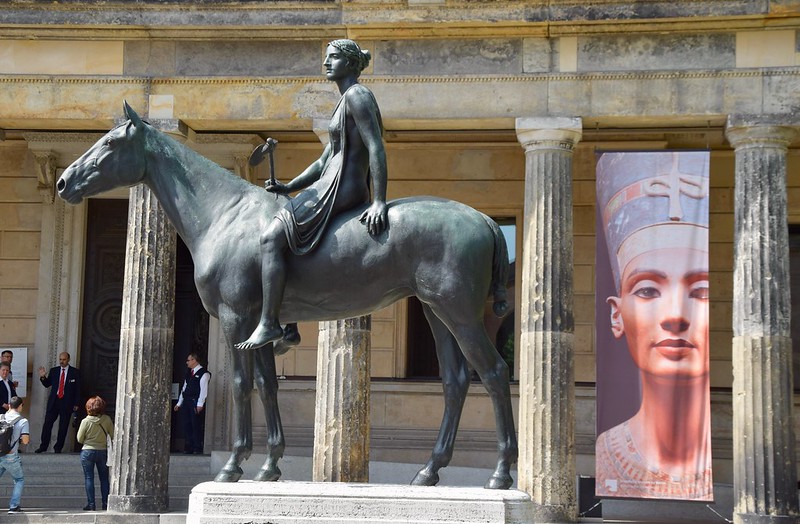
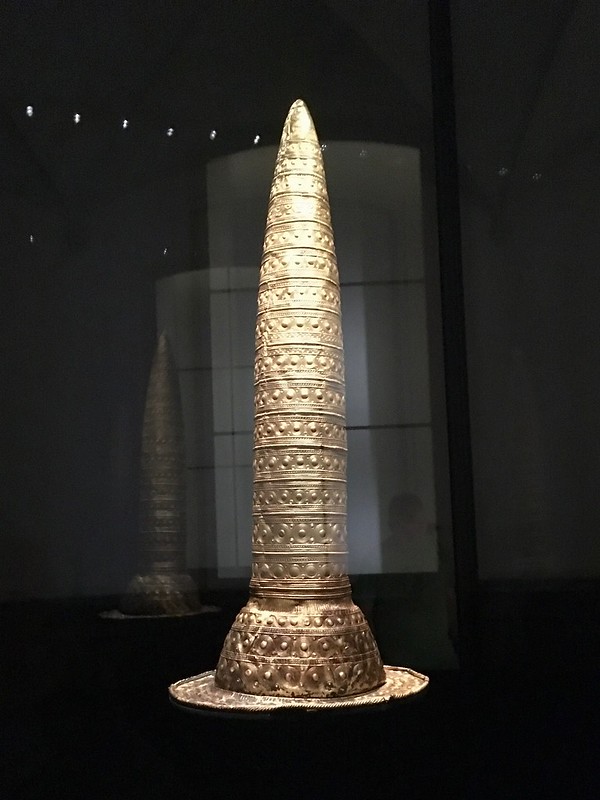
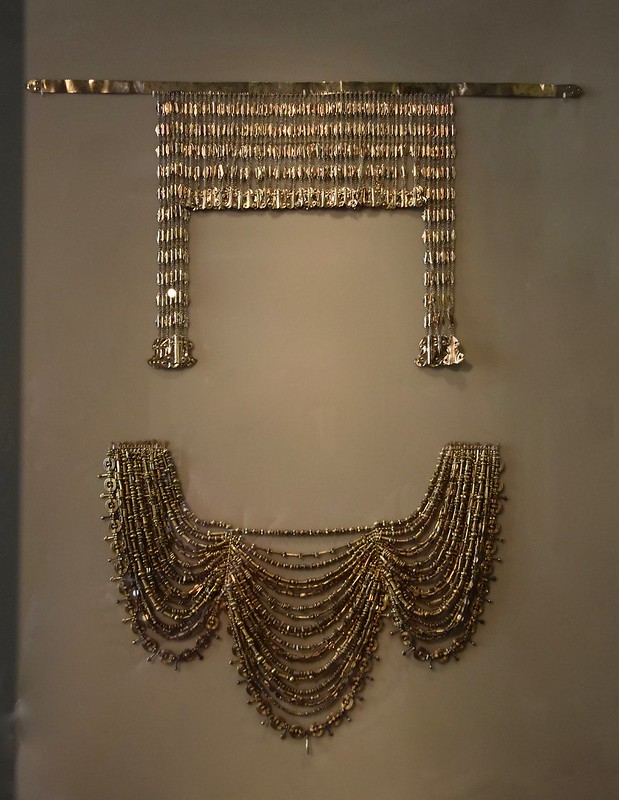
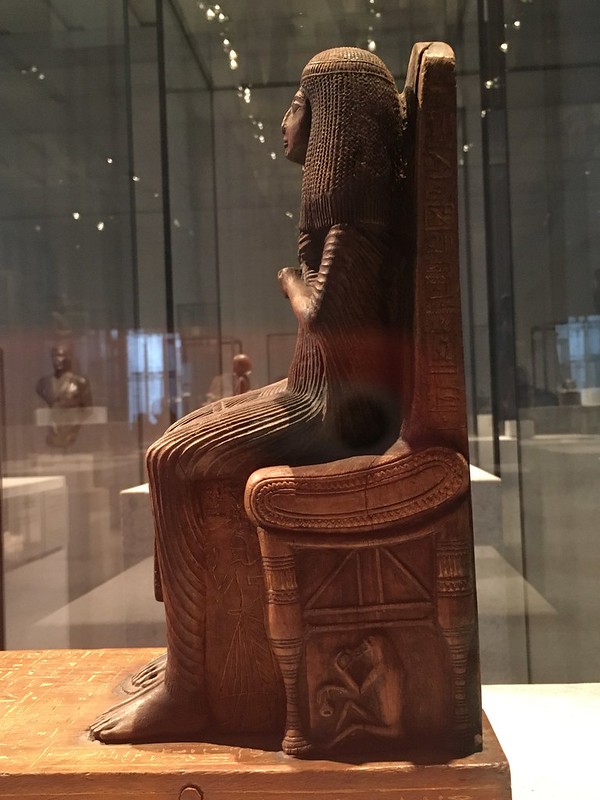
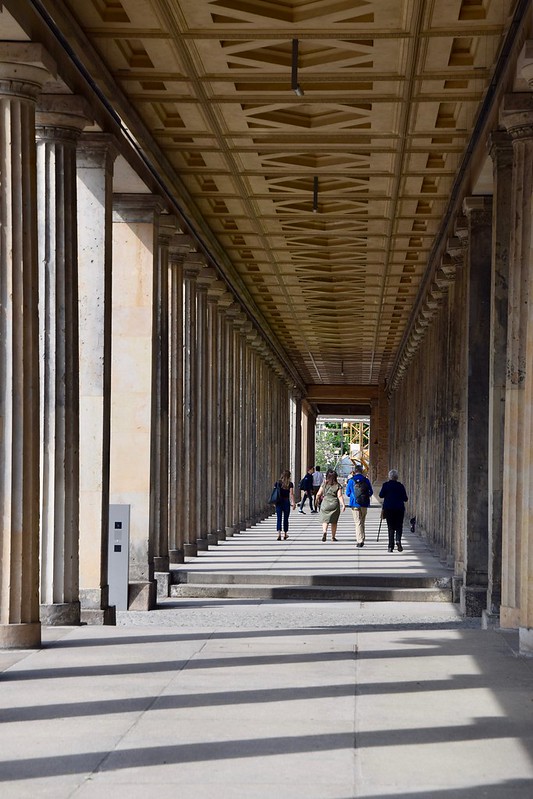
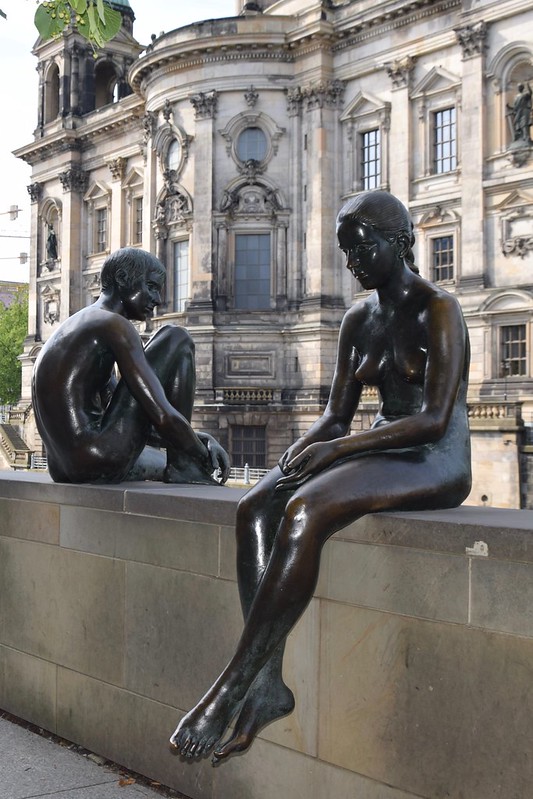
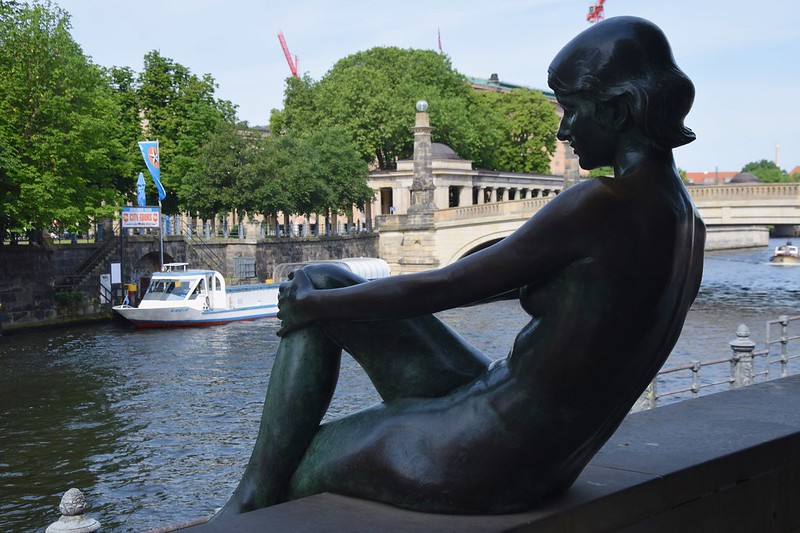
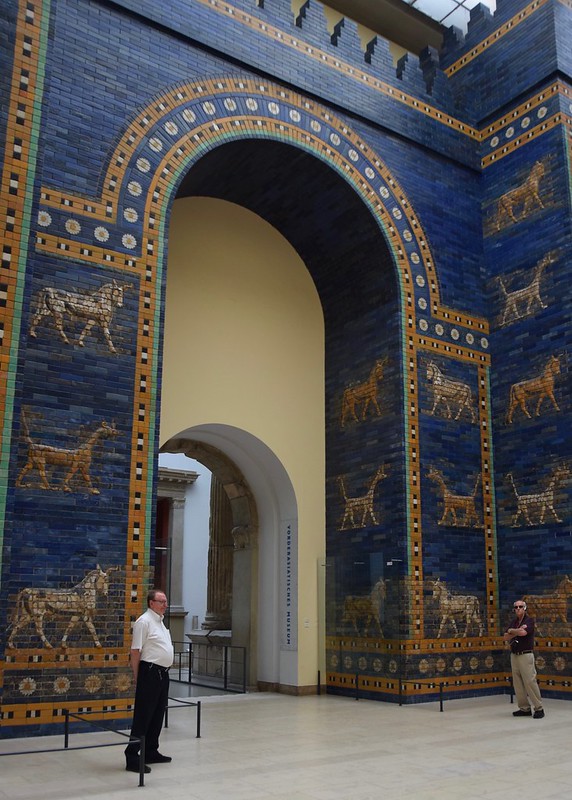
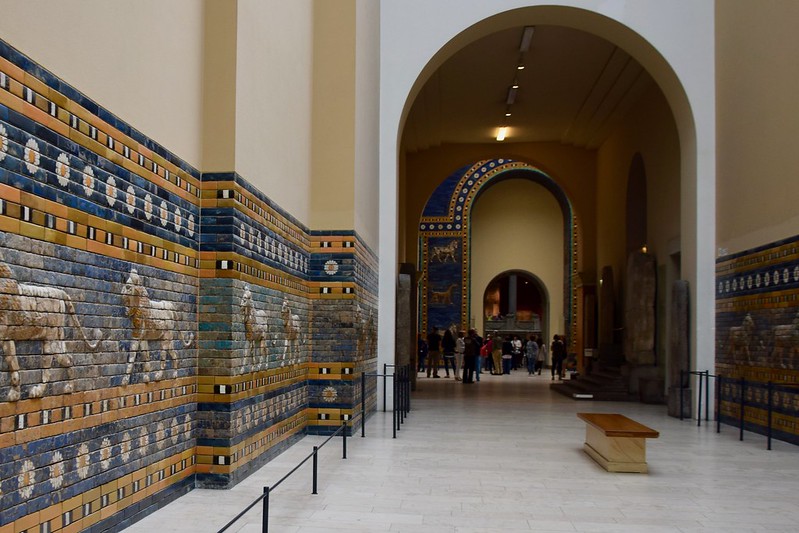
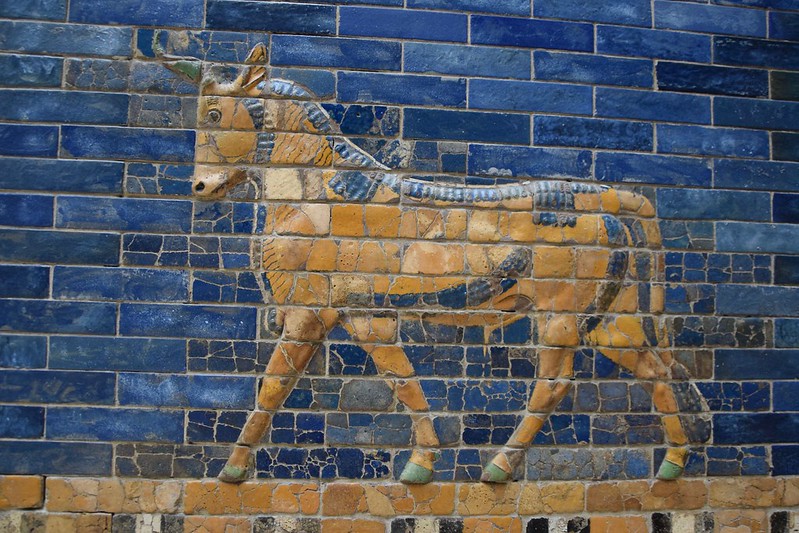
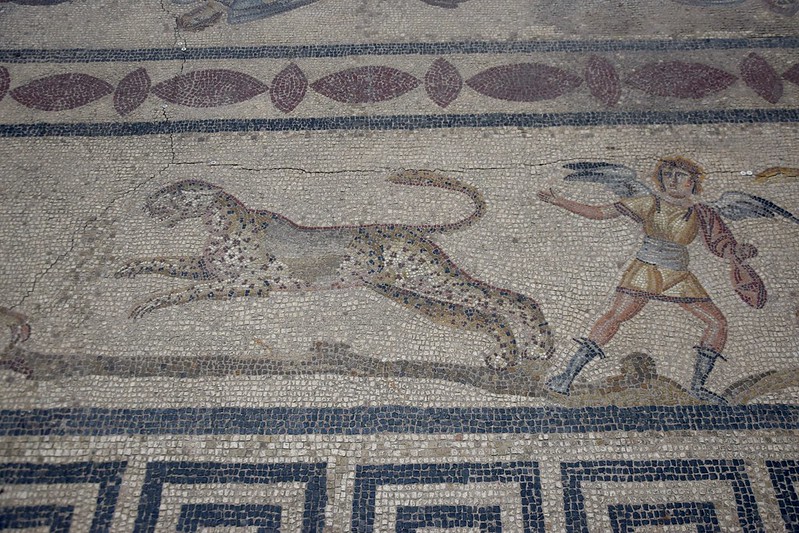
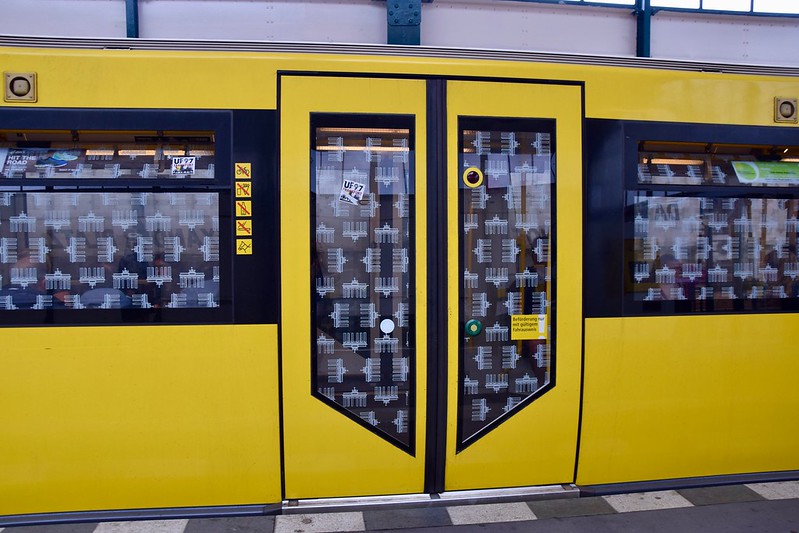
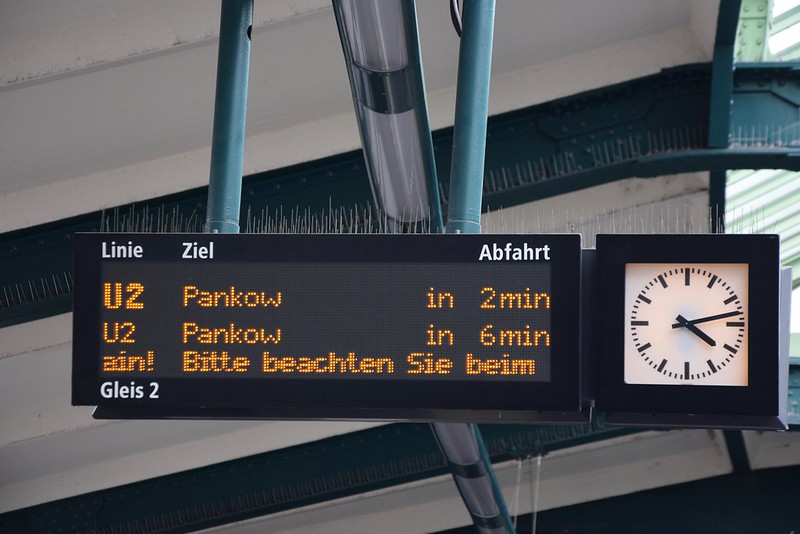
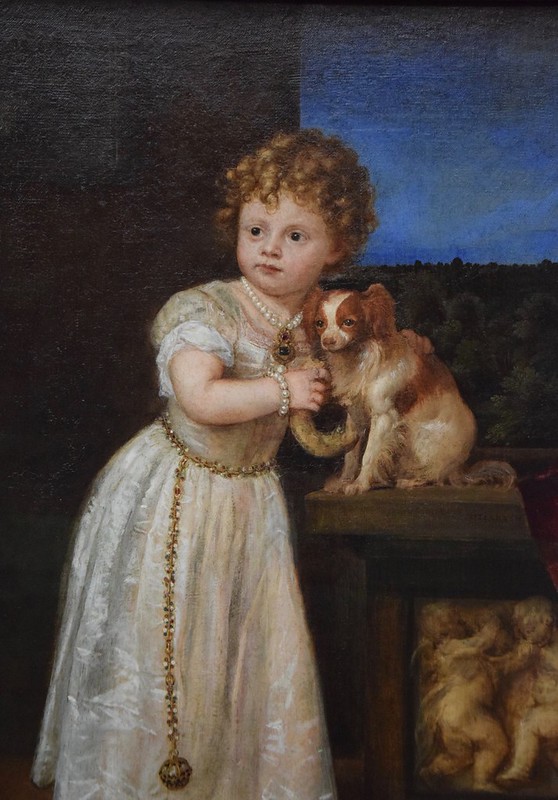
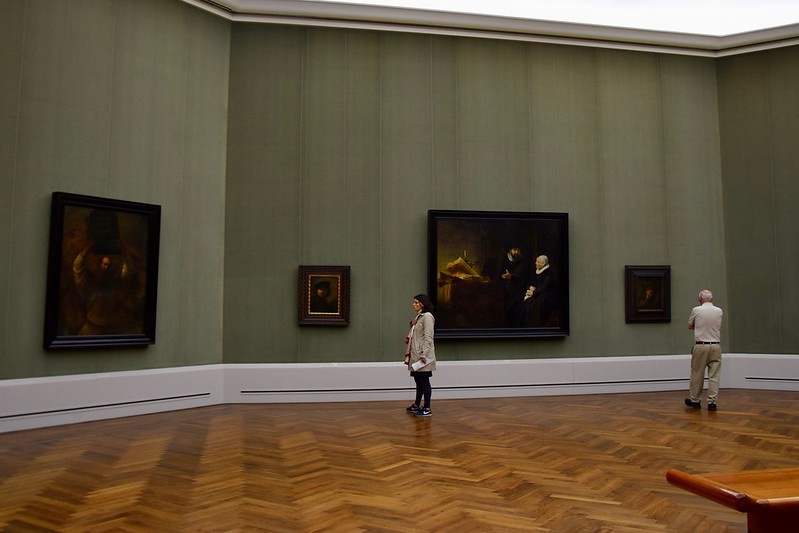
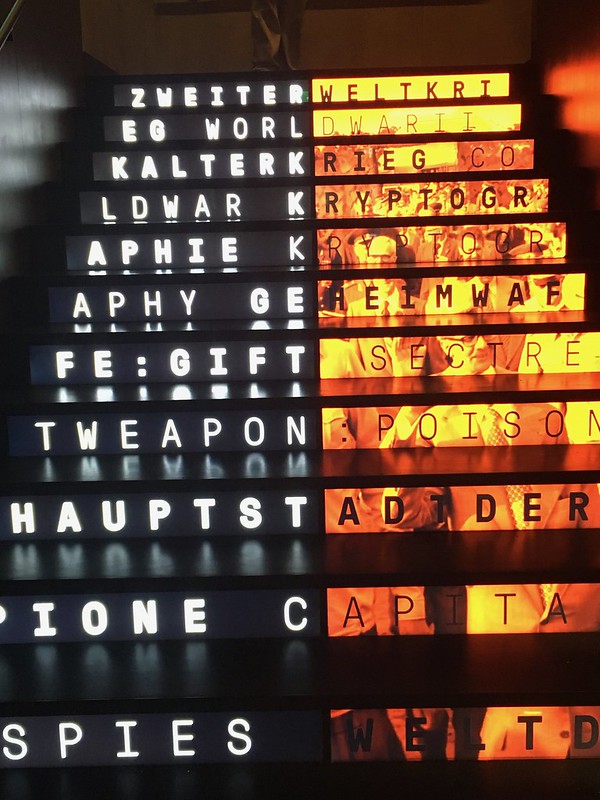
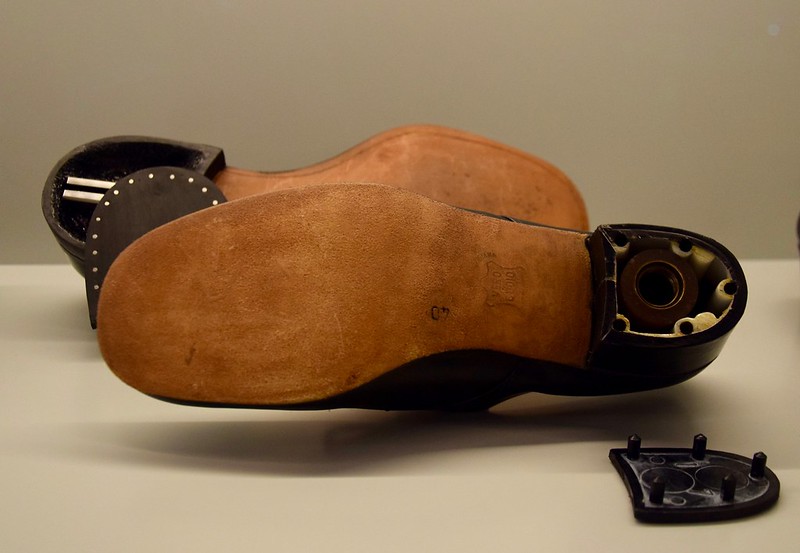
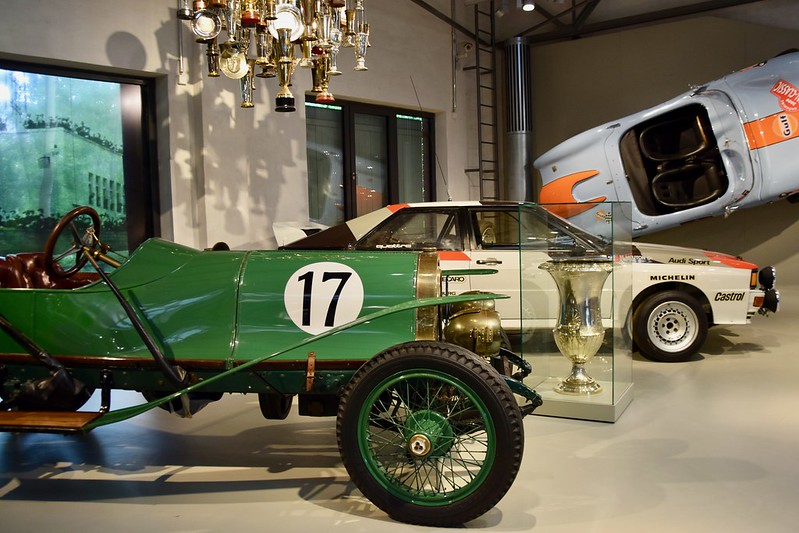
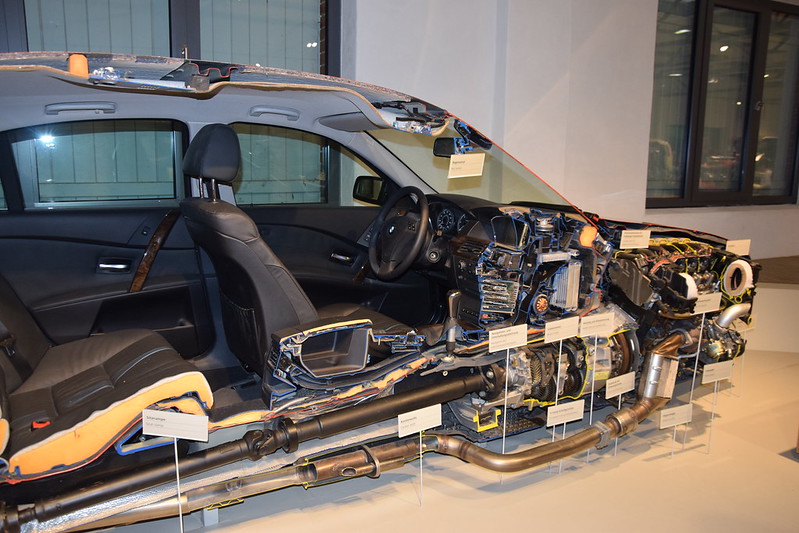
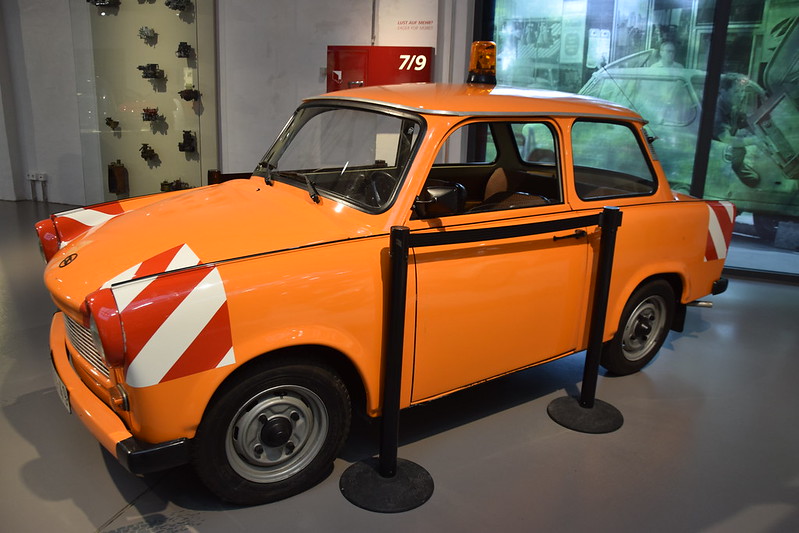
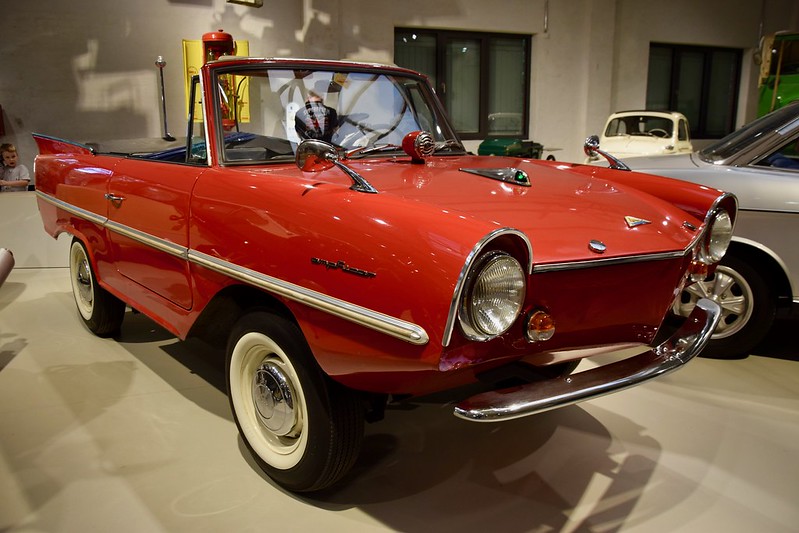
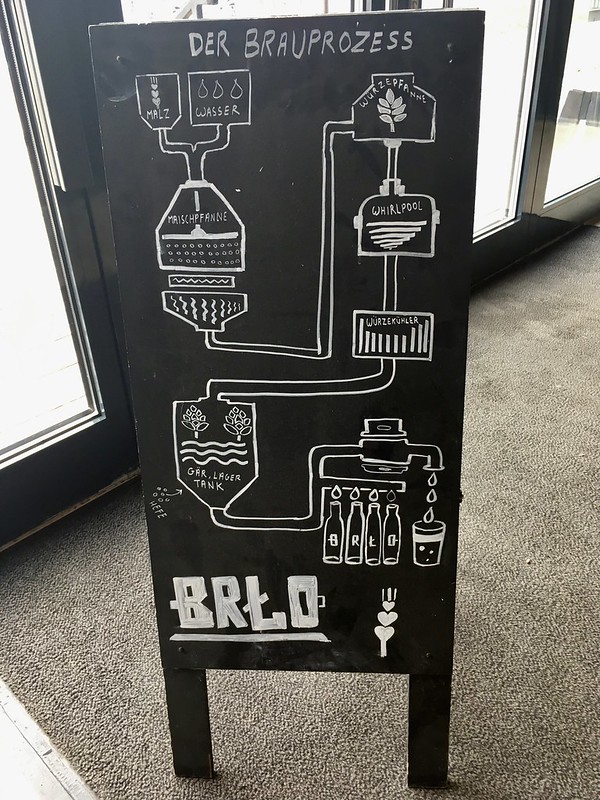
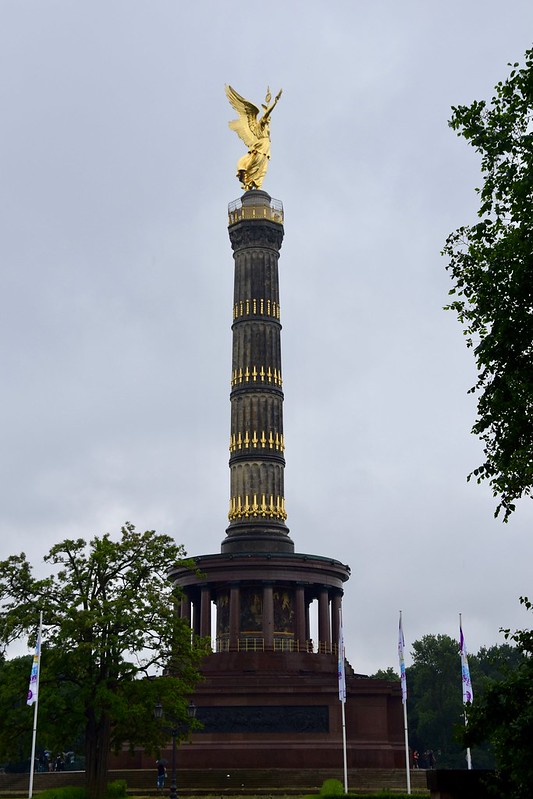
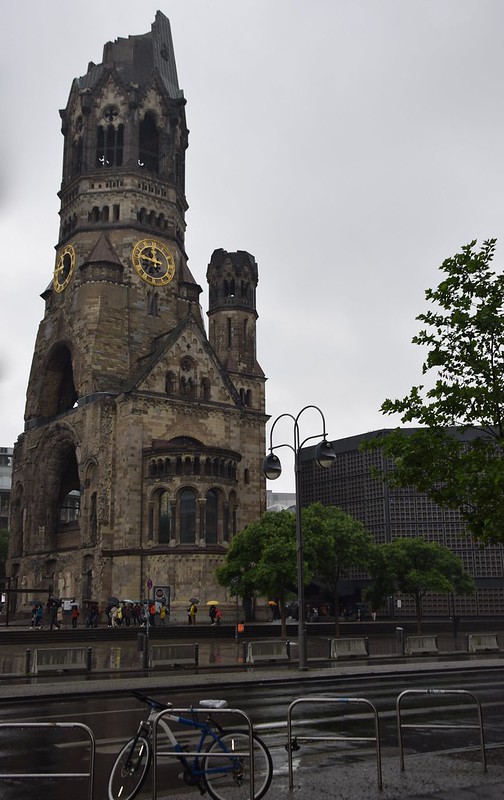
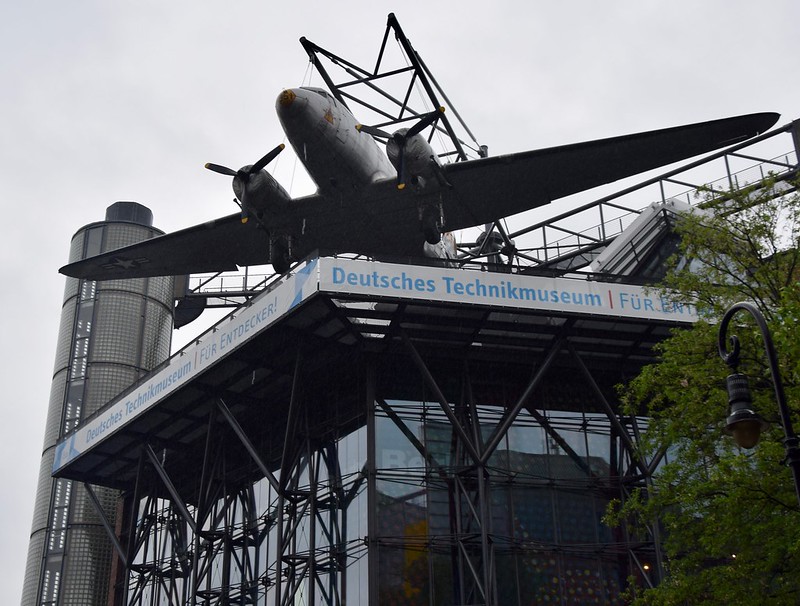
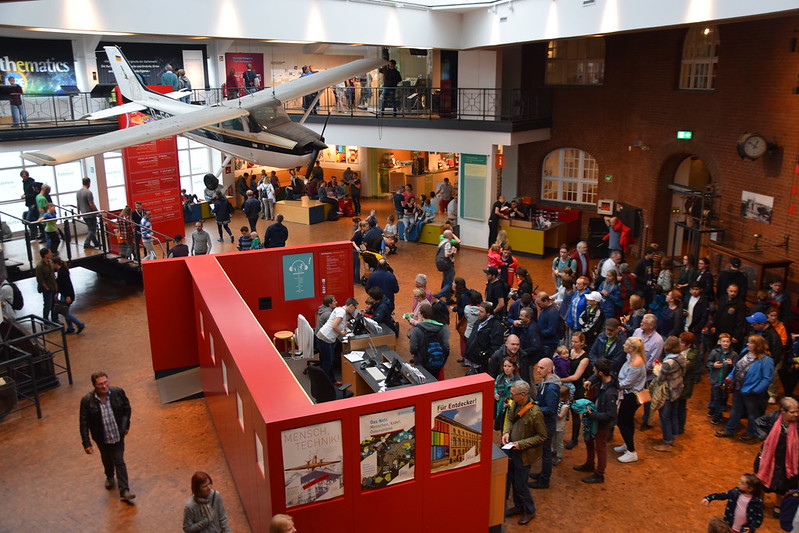
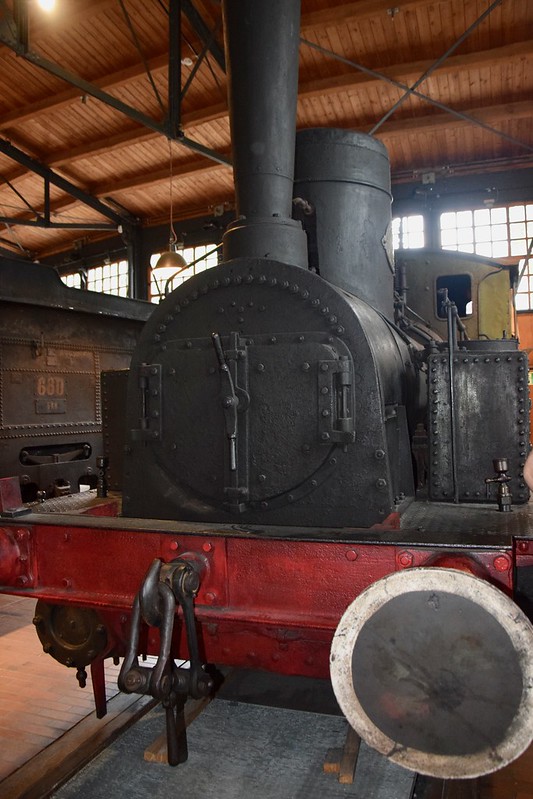
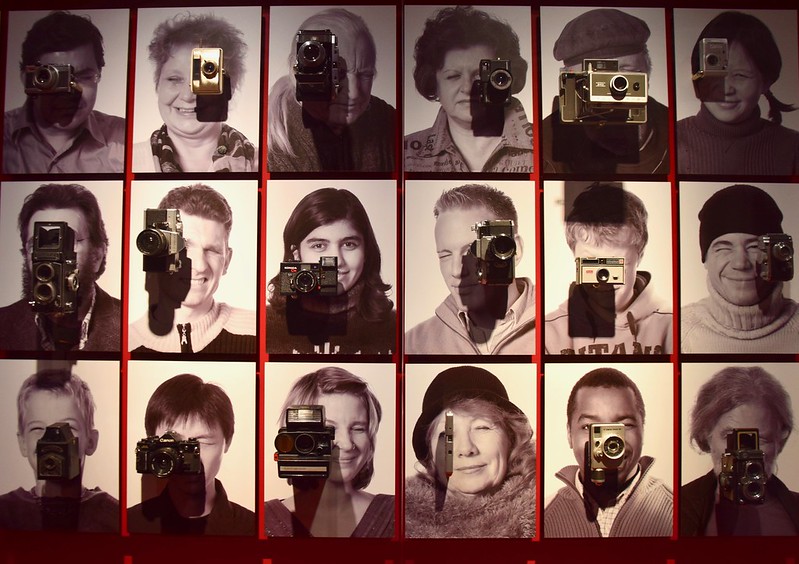
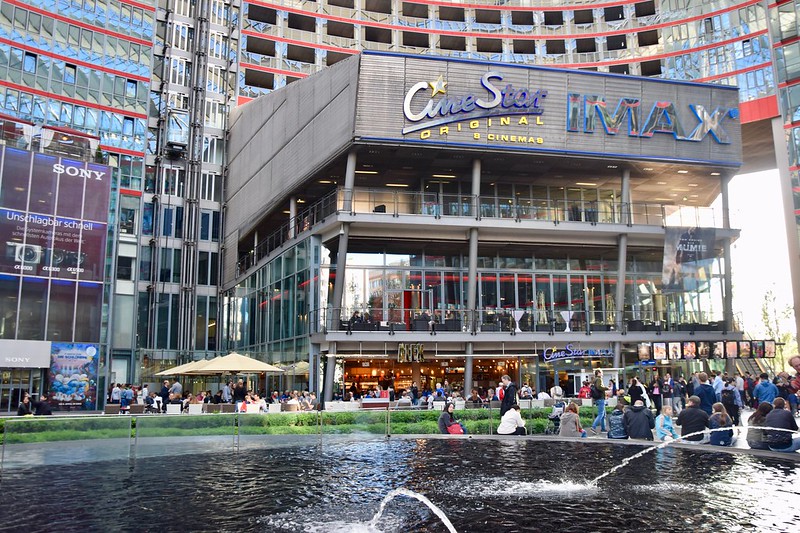
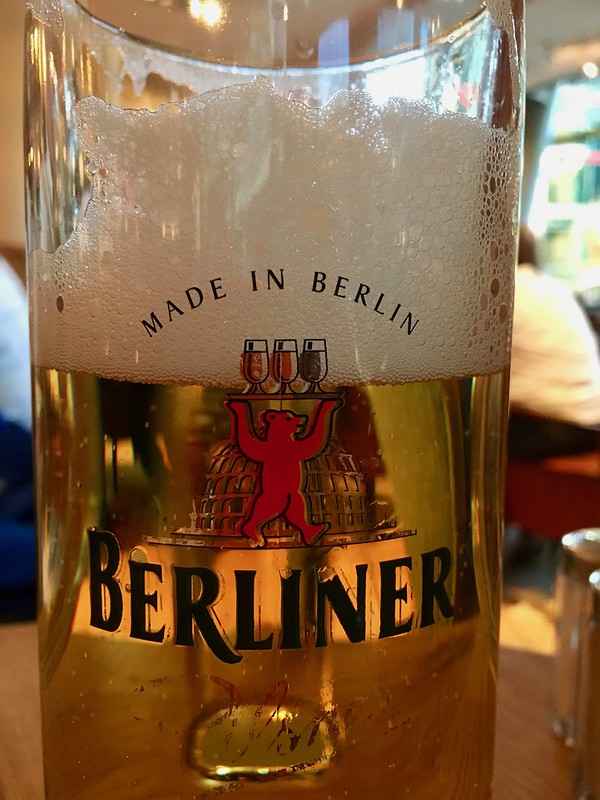
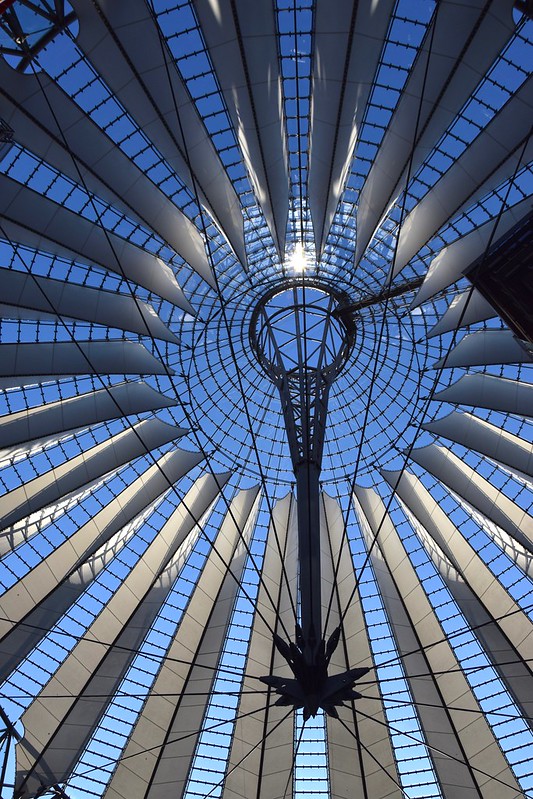
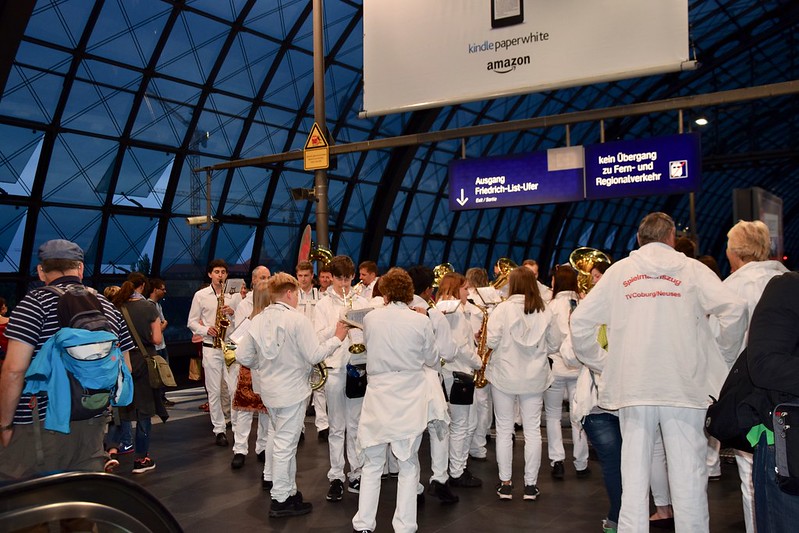
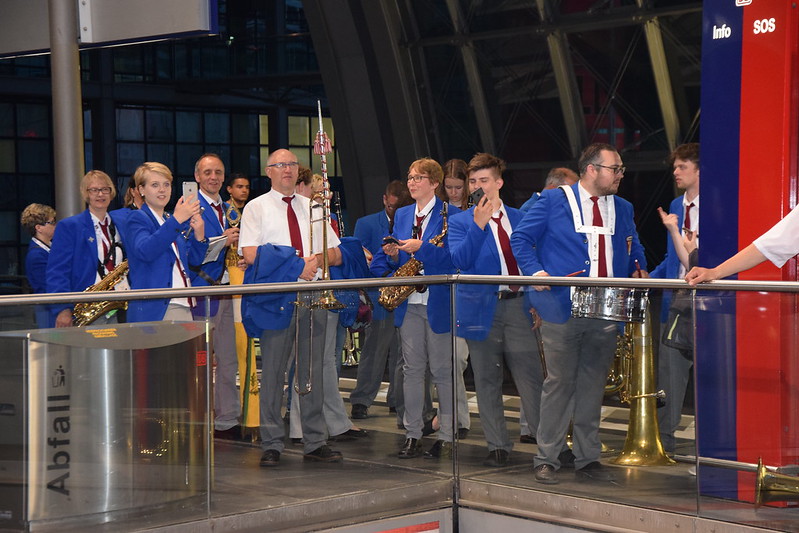
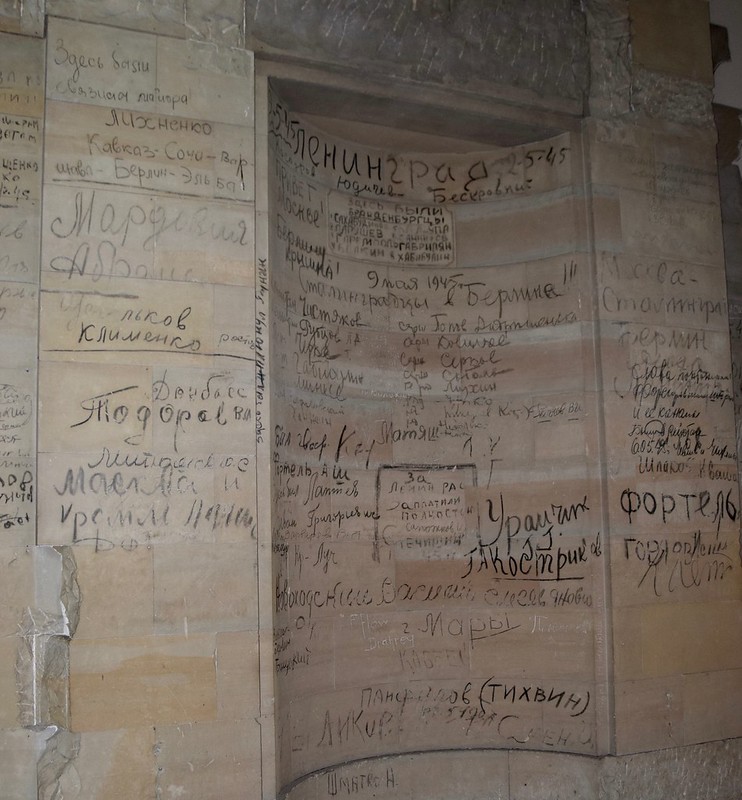
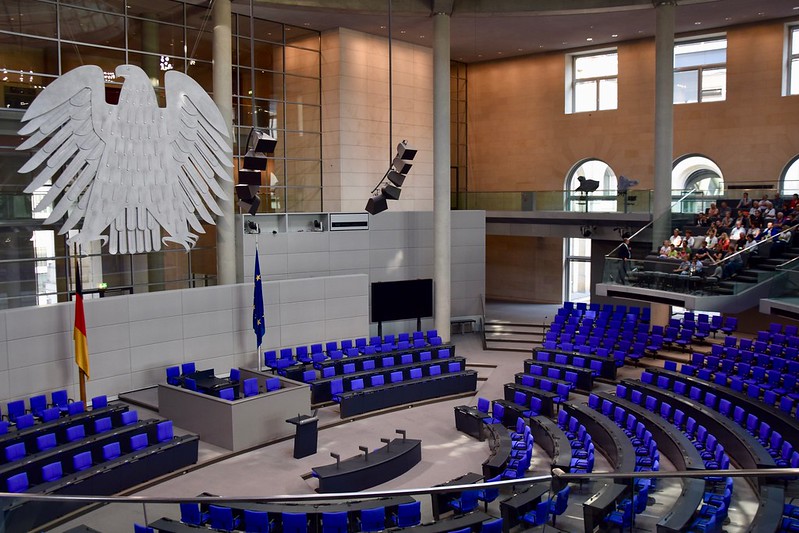
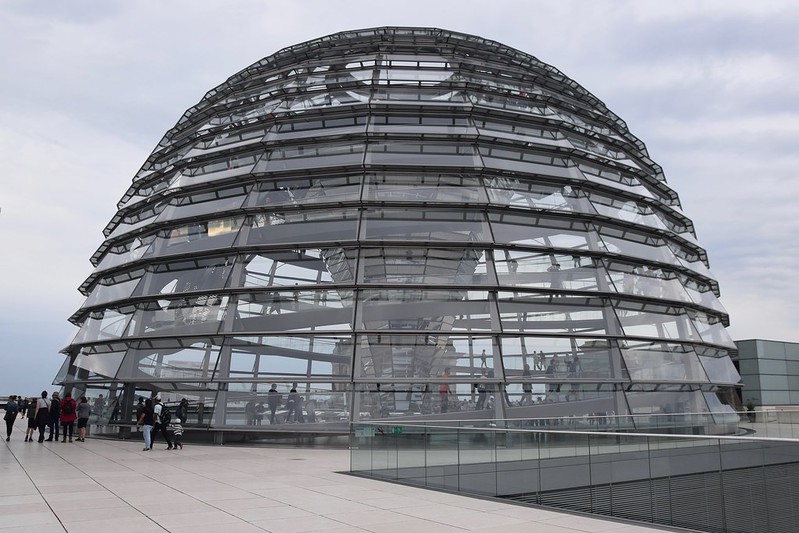
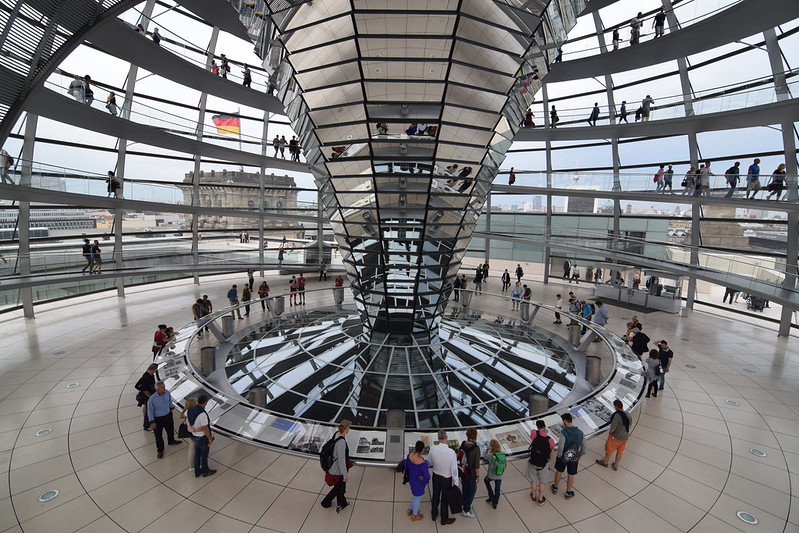
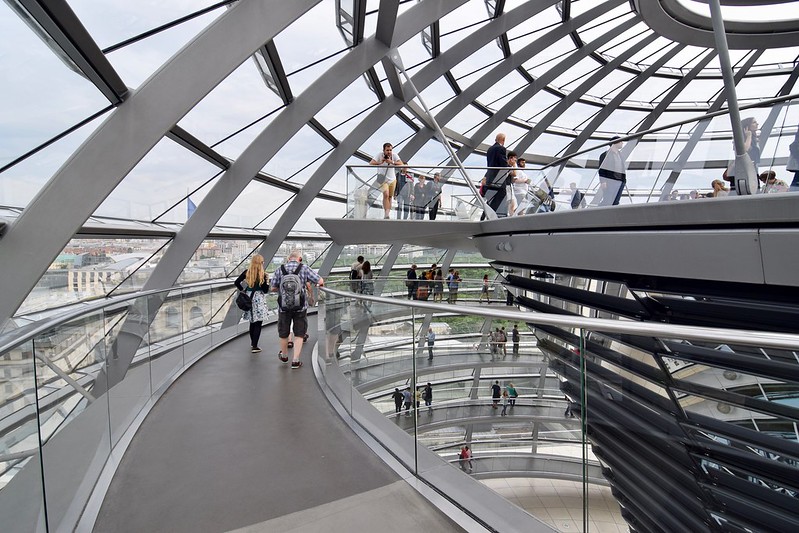

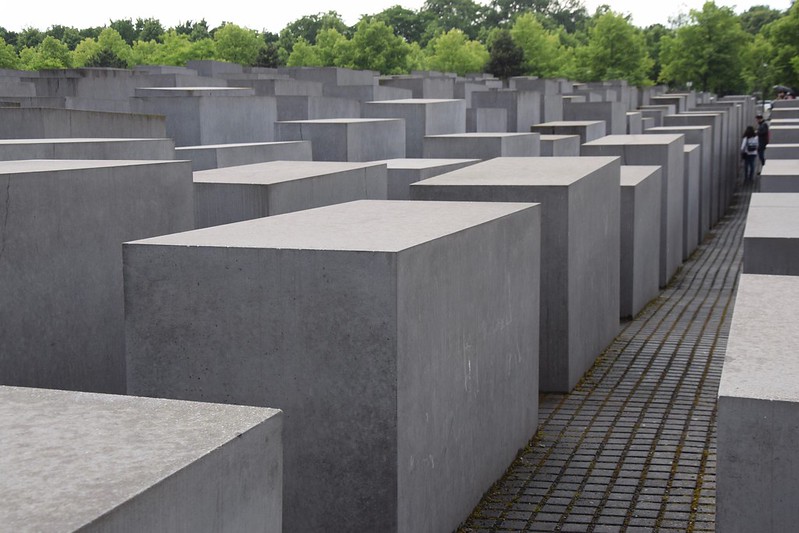
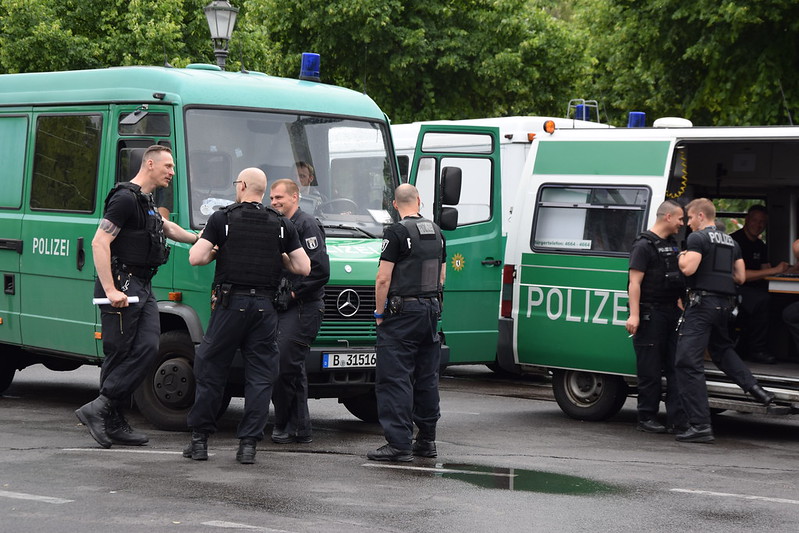
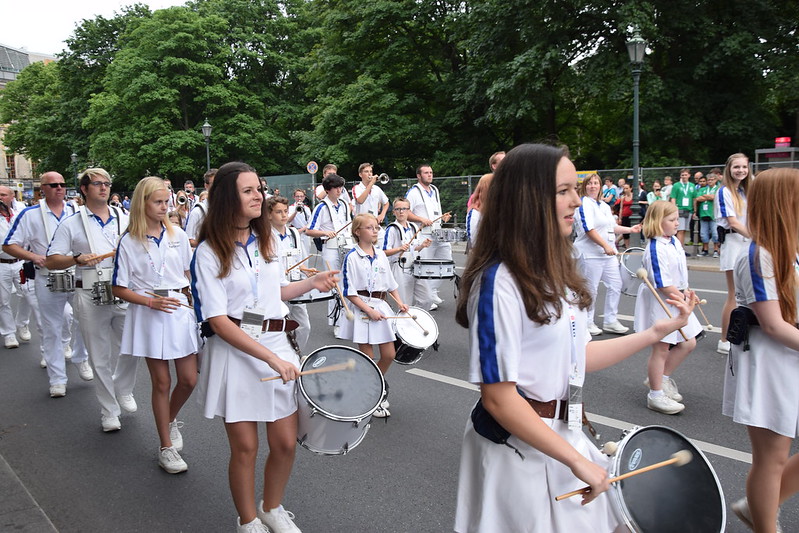
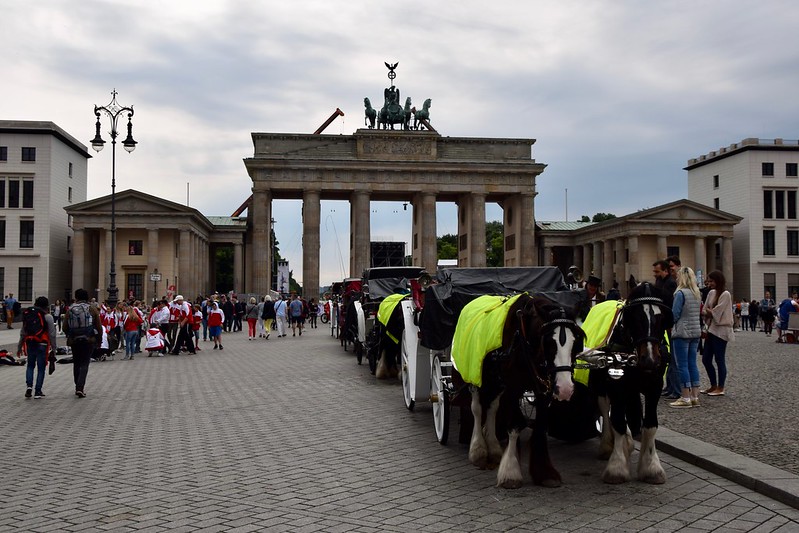
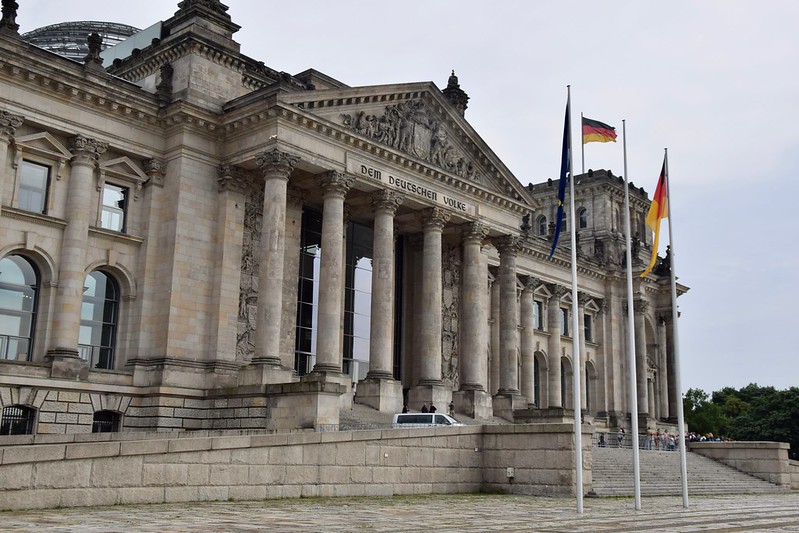
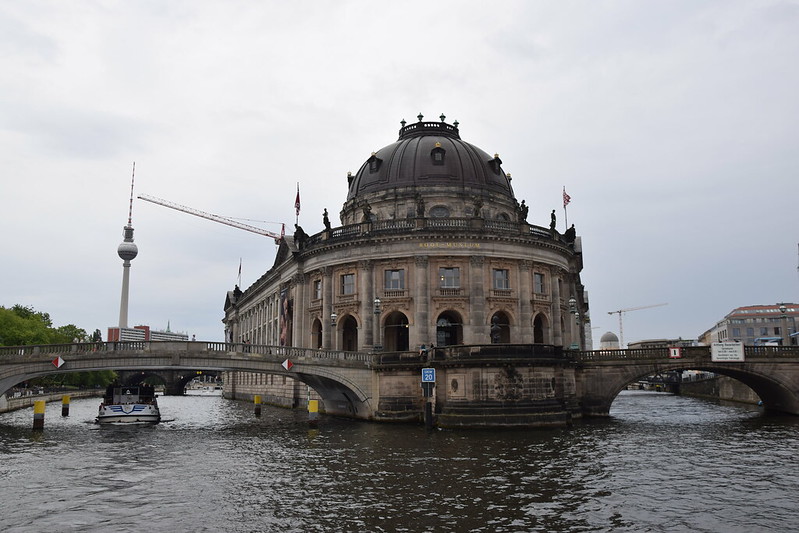
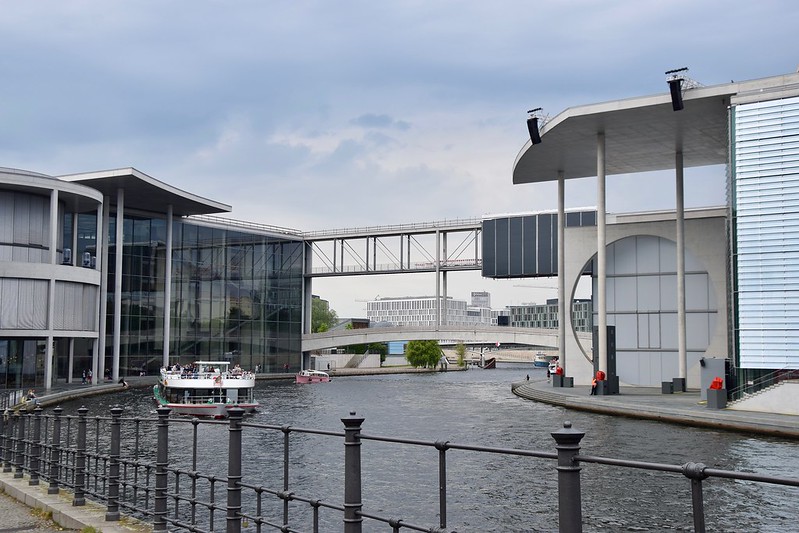
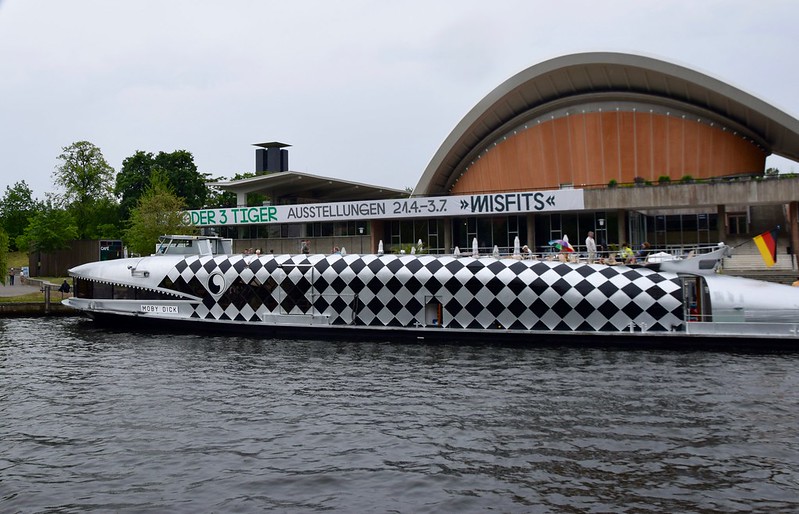
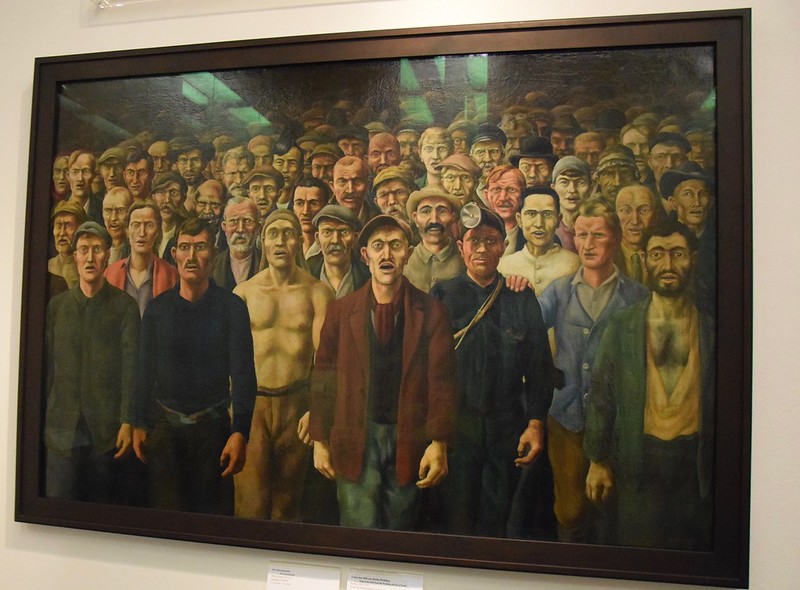
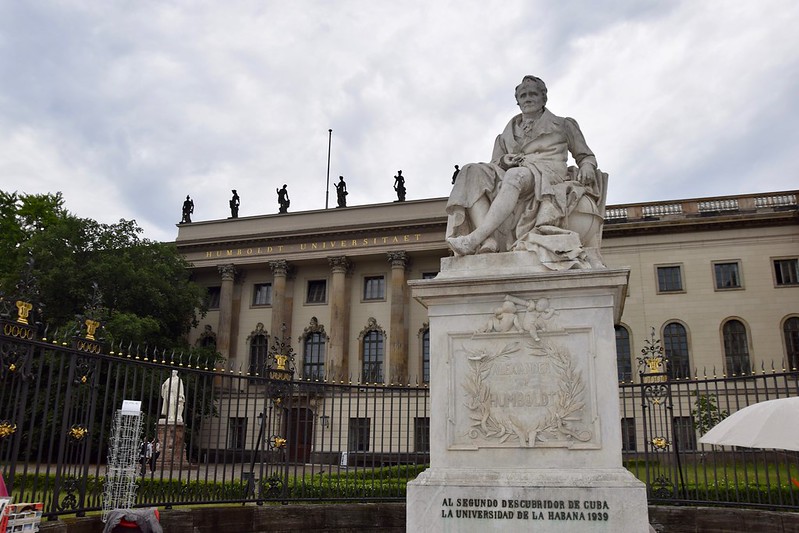
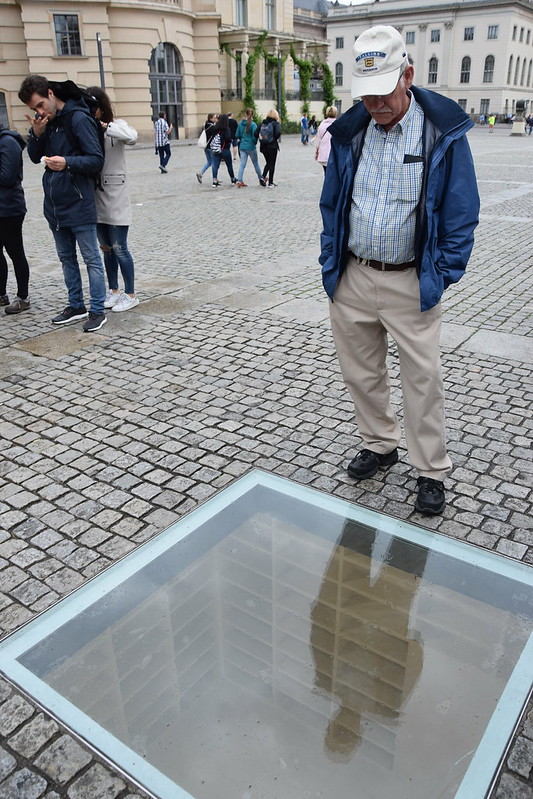
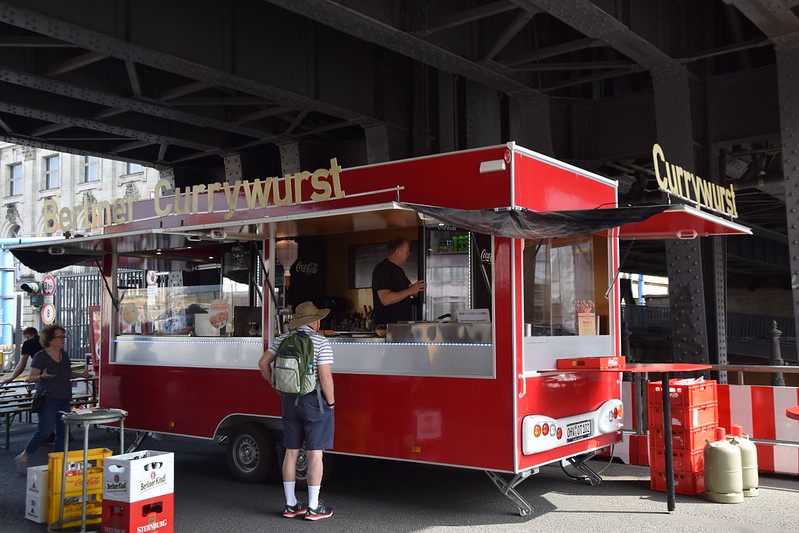
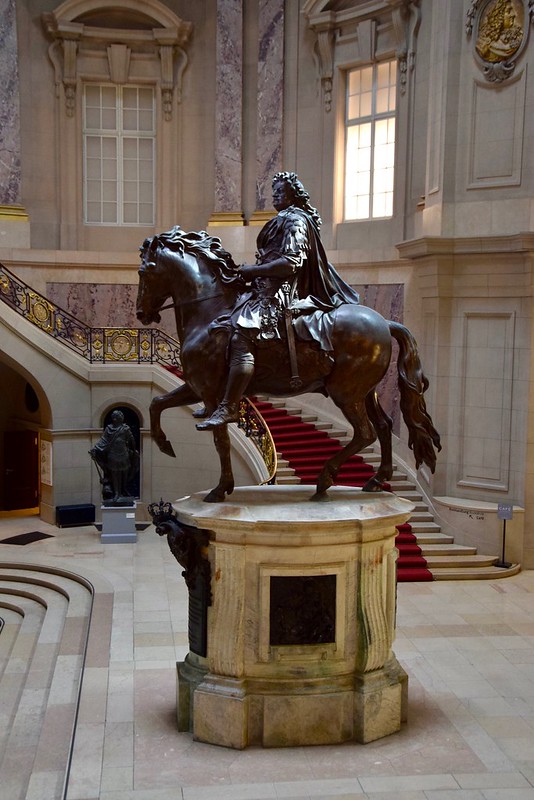
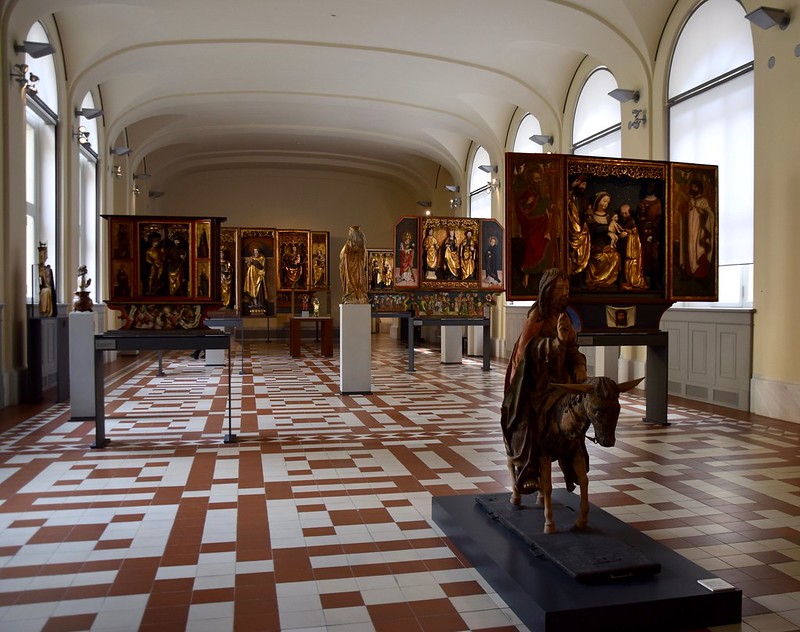
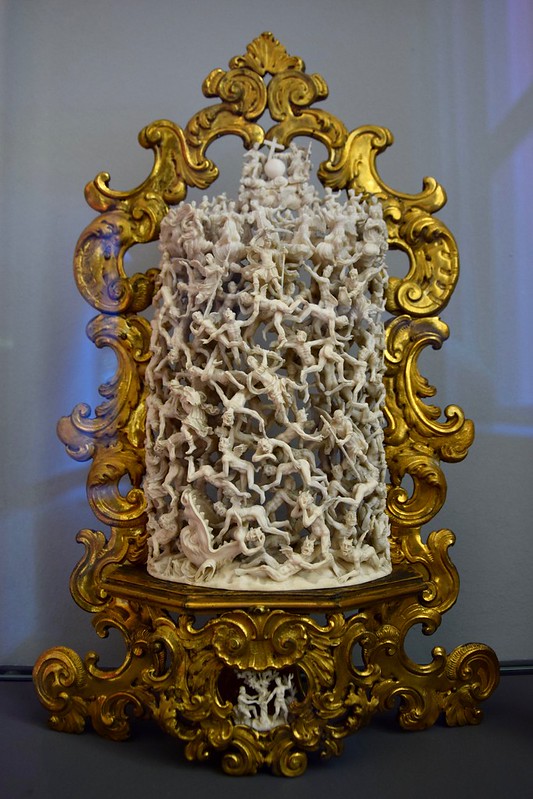
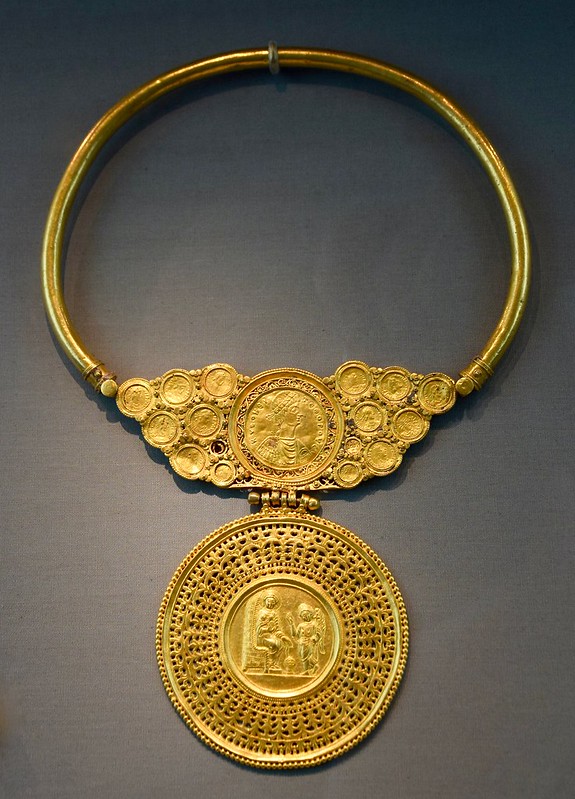
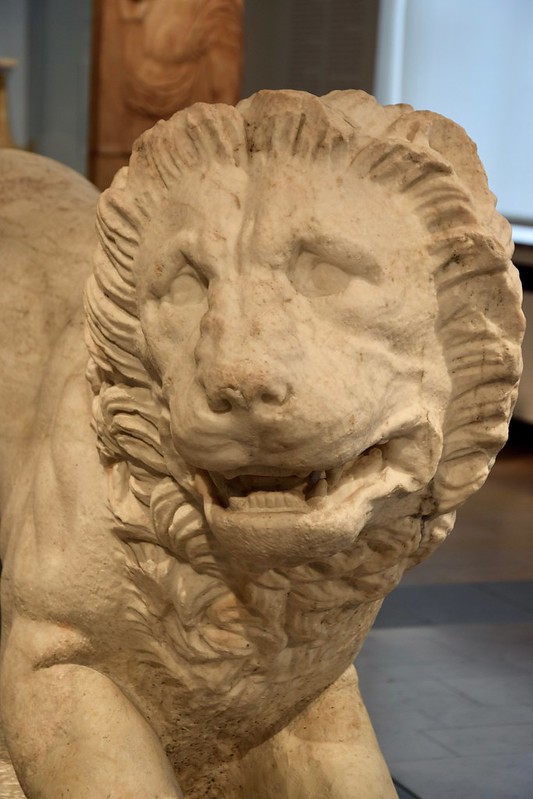
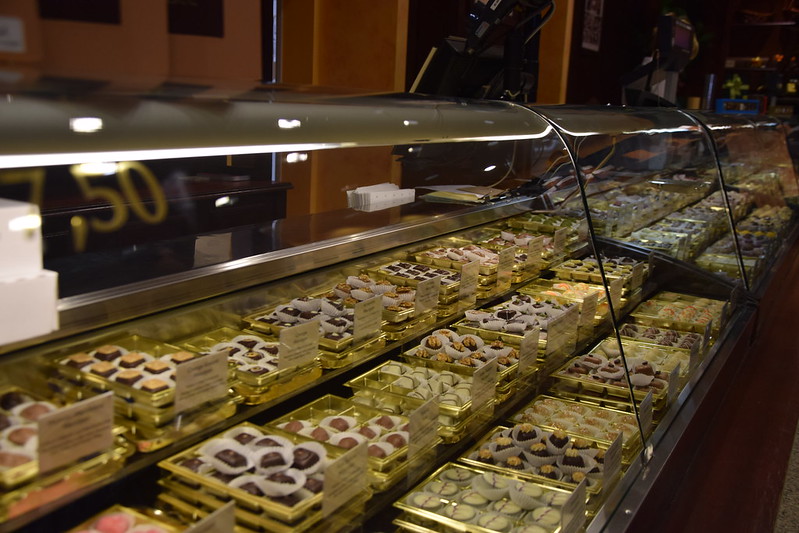
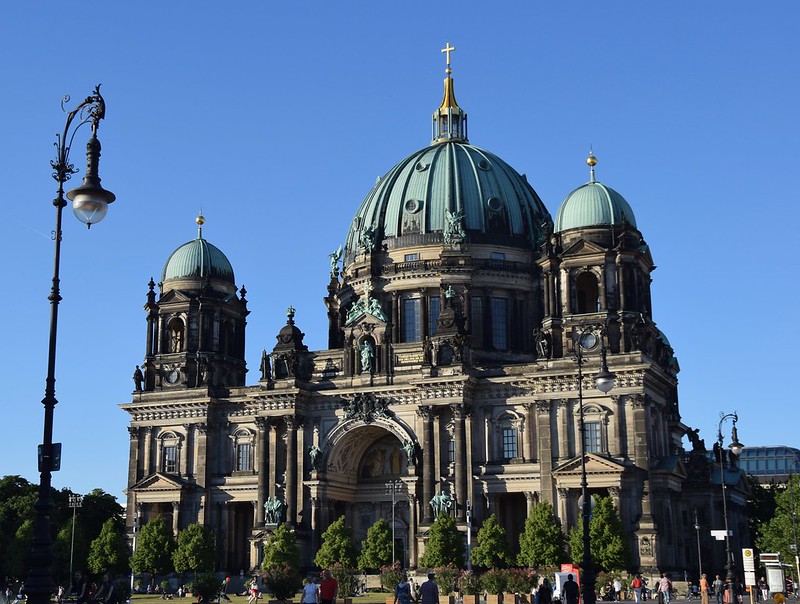
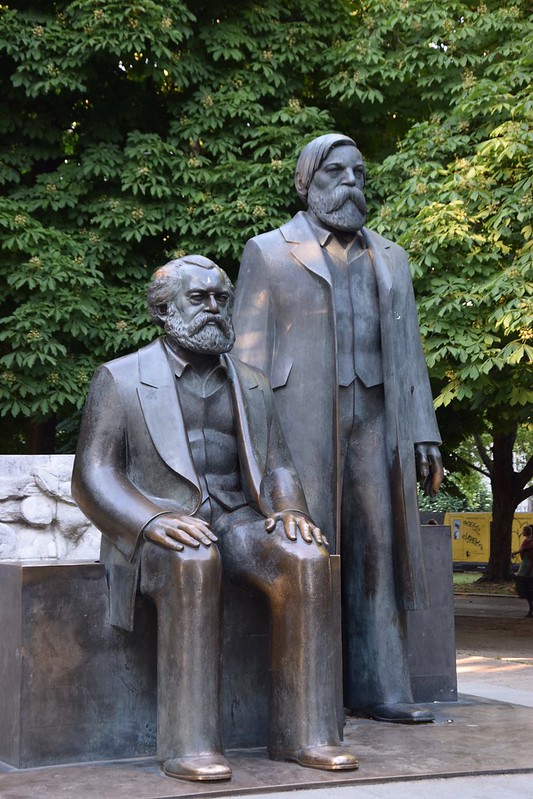
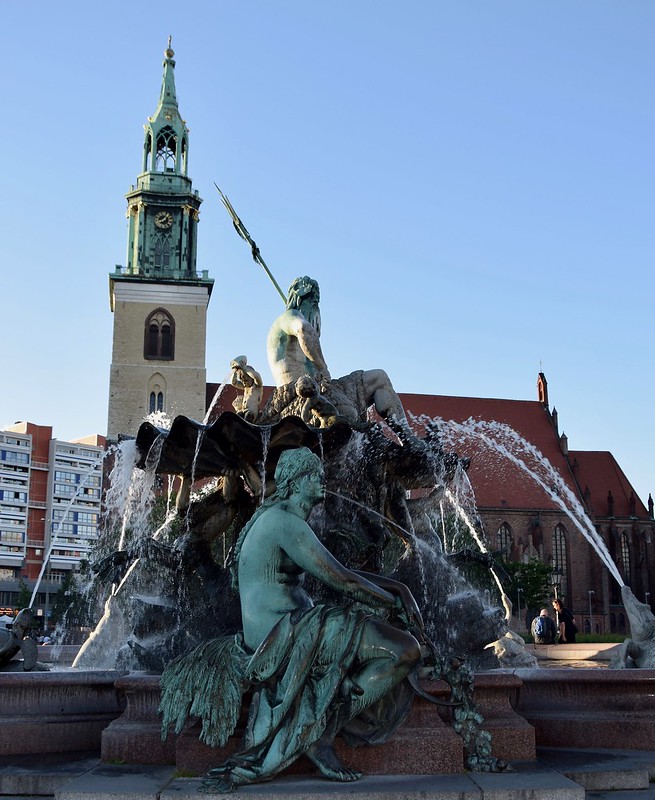
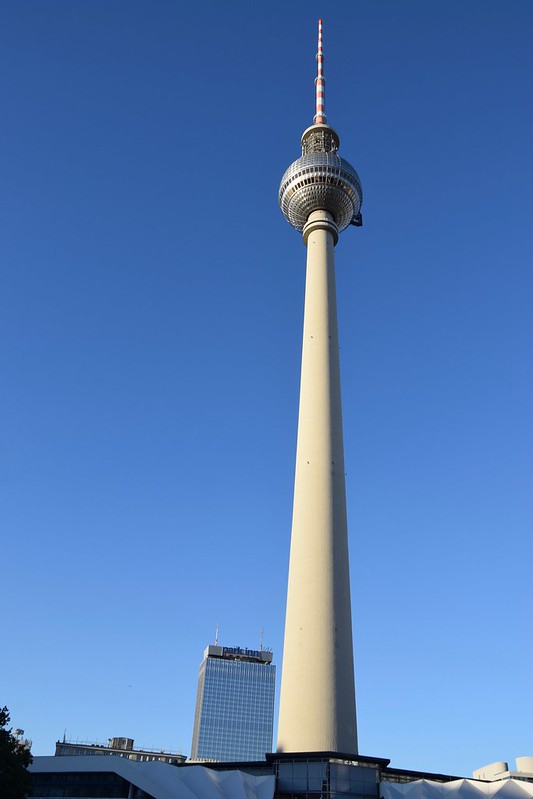
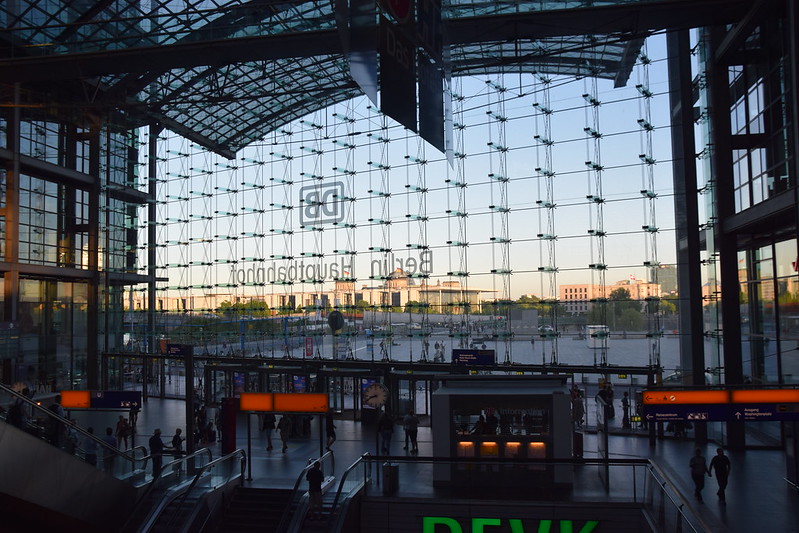
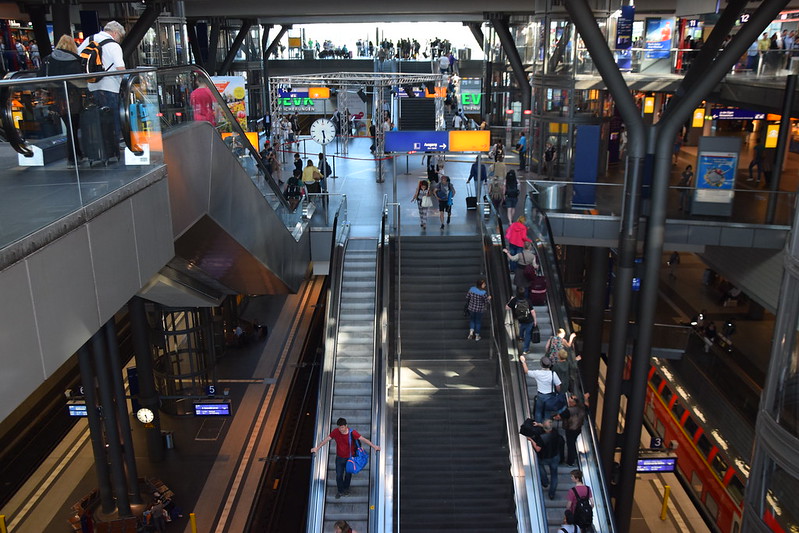
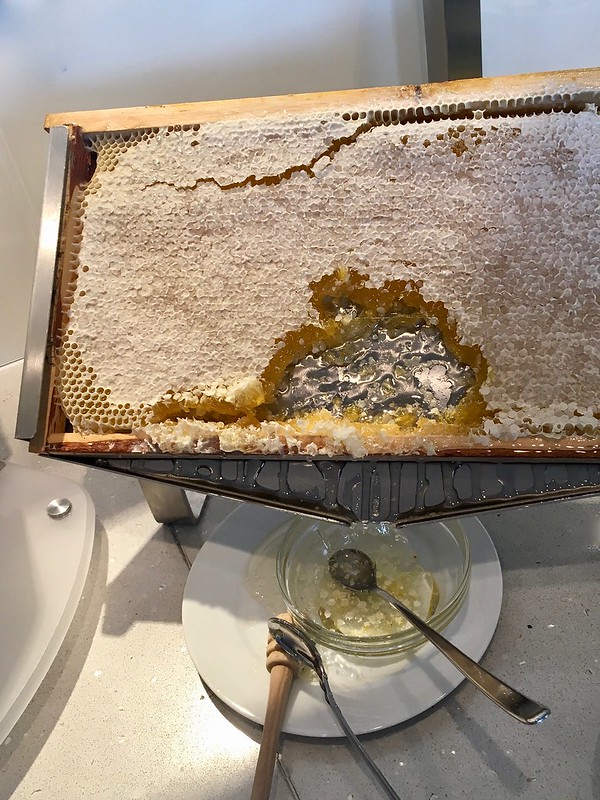
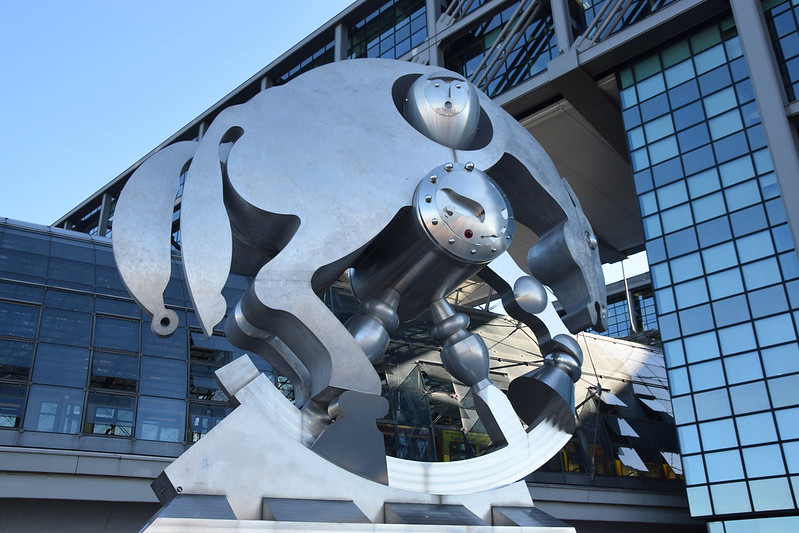
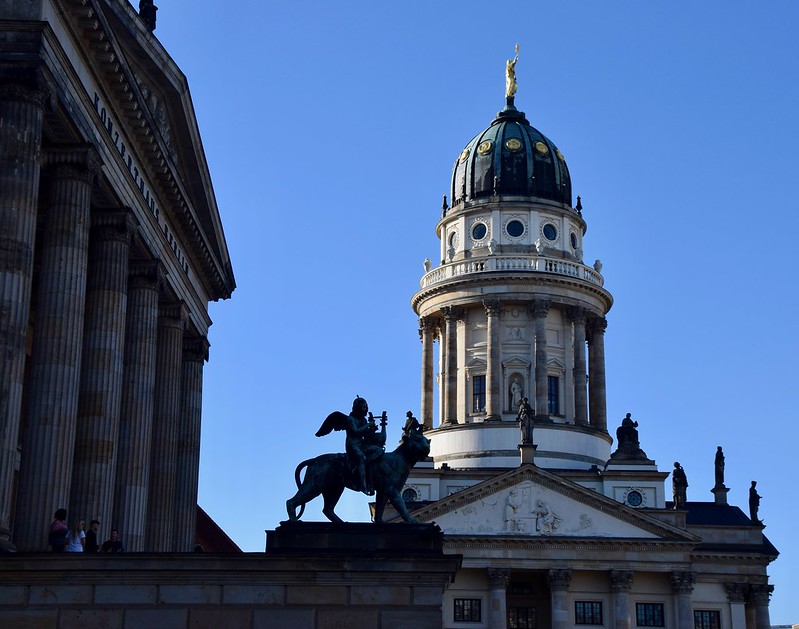
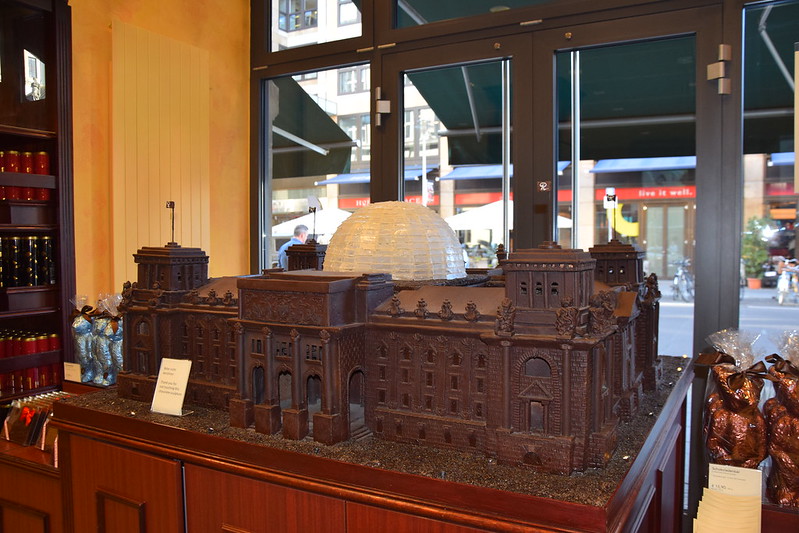
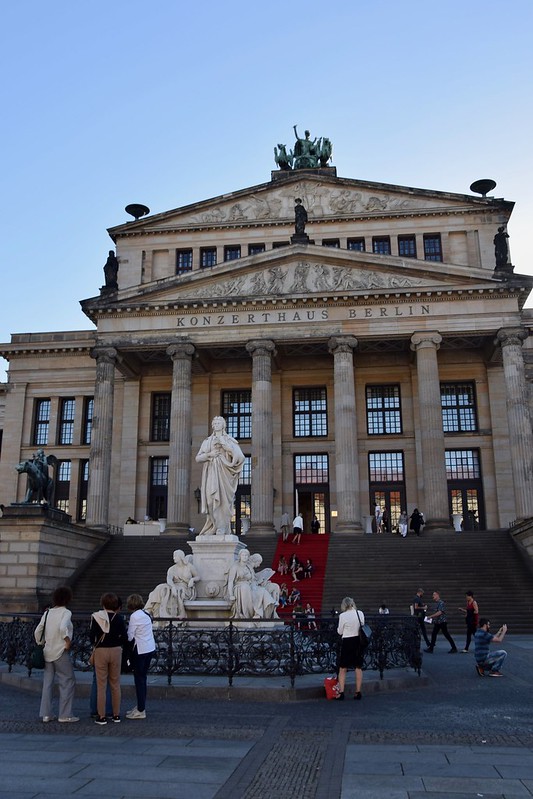
Review of Silhouette Nov 2016 Transatlantic
in Celebrity Cruises
Posted
Thanks so much for your review. I know how much time and work these take and Photobucket's action is really frustrating. Their new pricing policy is outrageous and I don't think it even makes sense from a business perspective.